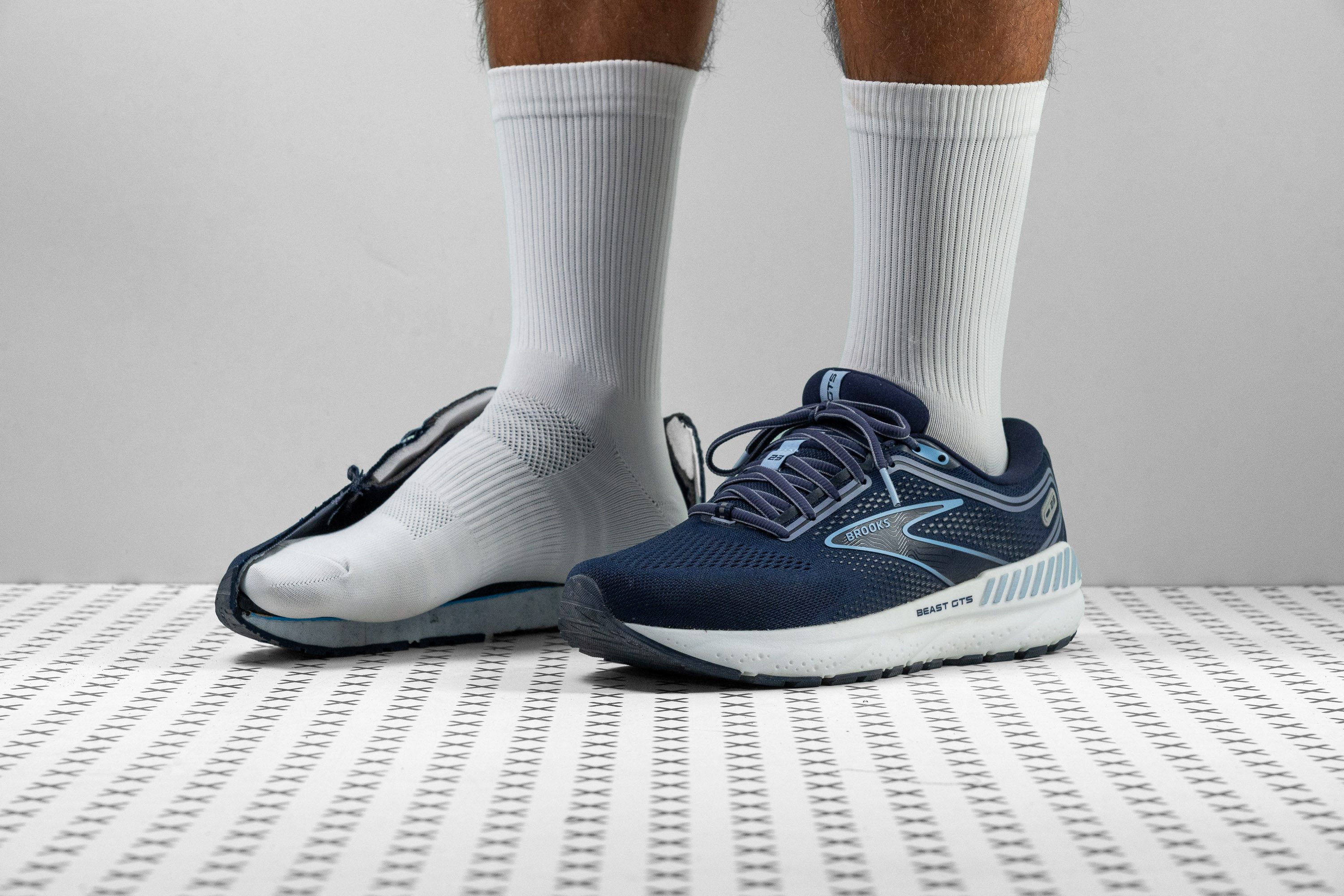Our verdict
- Top pick in best running shoes with a wide toebox (2023)
- Top pick in best Brooks walking shoes (2024)
Pros
- Exceptionally stable
- Effective GuideRails technology
- Ideal for heel strikers
- Superior build quality
- Responsive DNA Loft v3 foam
- Durable and grippy outsole
- Comfortable and breathable upper
- Good volume in the upper for those with wide feet
Cons
- High weight can lead to leg fatigue
- Not versatile for faster paces or longer distances.
- Becomes too firm in cold weather
Audience verdict
Comparison
The most similar running shoes compared
+ + Add a shoe | |||||
|---|---|---|---|---|---|
| Audience score | 85 Good! | 88 Great! | 80 Good! | 85 Good! | |
| Price | $160 | $170 | $125 | $140 | |
| Pace | Daily running | Daily running | Daily running | Daily running | |
| Shock absorption | - | - | High | - | |
| Energy return | - | - | Moderate | - | |
| Traction | - | - | High | - | |
| Arch support | Stability | Stability | Stability | Stability | |
| Weight lab Weight brand | 12.4 oz / 352g 11.9 oz / 337g | 11.6 oz / 329g 11.8 oz / 334g | 8.1 oz / 231g 8 oz / 228g | 12.5 oz / 353g 12.2 oz / 346g | |
| Lightweight | ✗ | ✗ | ✓ | ✗ | |
| Drop lab Drop brand | 11.9 mm 12.0 mm | 7.2 mm 8.0 mm | 9.4 mm 5.0 mm | 12.1 mm 12.0 mm | |
| Strike pattern | Heel | HeelMid/forefoot | HeelMid/forefoot | Heel | |
| Size | True to size | True to size | Slightly small | Slightly small | |
| Midsole softness | Balanced | Balanced | Soft | Firm | |
| Difference in midsole softness in cold | Big | Normal | Big | Small | |
| Toebox durability | Decent | Decent | Bad | Decent | |
| Heel padding durability | Decent | Bad | Decent | Good | |
| Outsole durability | Good | Good | Bad | Good | |
| Breathability | Moderate | Moderate | Breathable | Moderate | |
| Width / fit | Medium | Medium | Narrow | Medium | |
| Toebox width | Medium | Wide | Narrow | Medium | |
| Stiffness | Stiff | Stiff | Moderate | Stiff | |
| Torsional rigidity | Stiff | Stiff | Stiff | Stiff | |
| Heel counter stiffness | Stiff | Stiff | Stiff | Moderate | |
| Rocker | ✗ | ✗ | ✓ | ✗ | |
| Heel lab Heel brand | 36.4 mm | 39.1 mm 41.0 mm | 36.0 mm 33.0 mm | 36.5 mm 36.0 mm | |
| Forefoot lab Forefoot brand | 24.5 mm | 31.9 mm 33.0 mm | 26.6 mm 28.0 mm | 24.4 mm 24.0 mm | |
| Widths available | NormalWideX-Wide | NormalWide | NormalWide | NarrowNormalWideX-Wide | |
| Orthotic friendly | ✓ | ✓ | ✓ | ✓ | |
| Season | All seasons | All seasons | SummerAll seasons | All seasons | |
| Removable insole | ✓ | ✓ | ✓ | ✓ | |
| Ranking | #426 Bottom 37% | #136 Top 36% | #318 Bottom 17% | #226 Bottom 41% | |
| Popularity | #370 Bottom 46% | #300 Bottom 22% | #56 Top 15% | #173 Top 45% |
Who should buy
This is one of the shoes with the most ambiguous use-cases we've come across. However, we think it might be great for:
- Runners who don't mind—or even prefer—heavy shoes and are seeking stability features.
- Heel strikers looking for a moderately firm running experience.
- Fans of Brooks aiming to include a comfortable and stable shoe in their rotation.
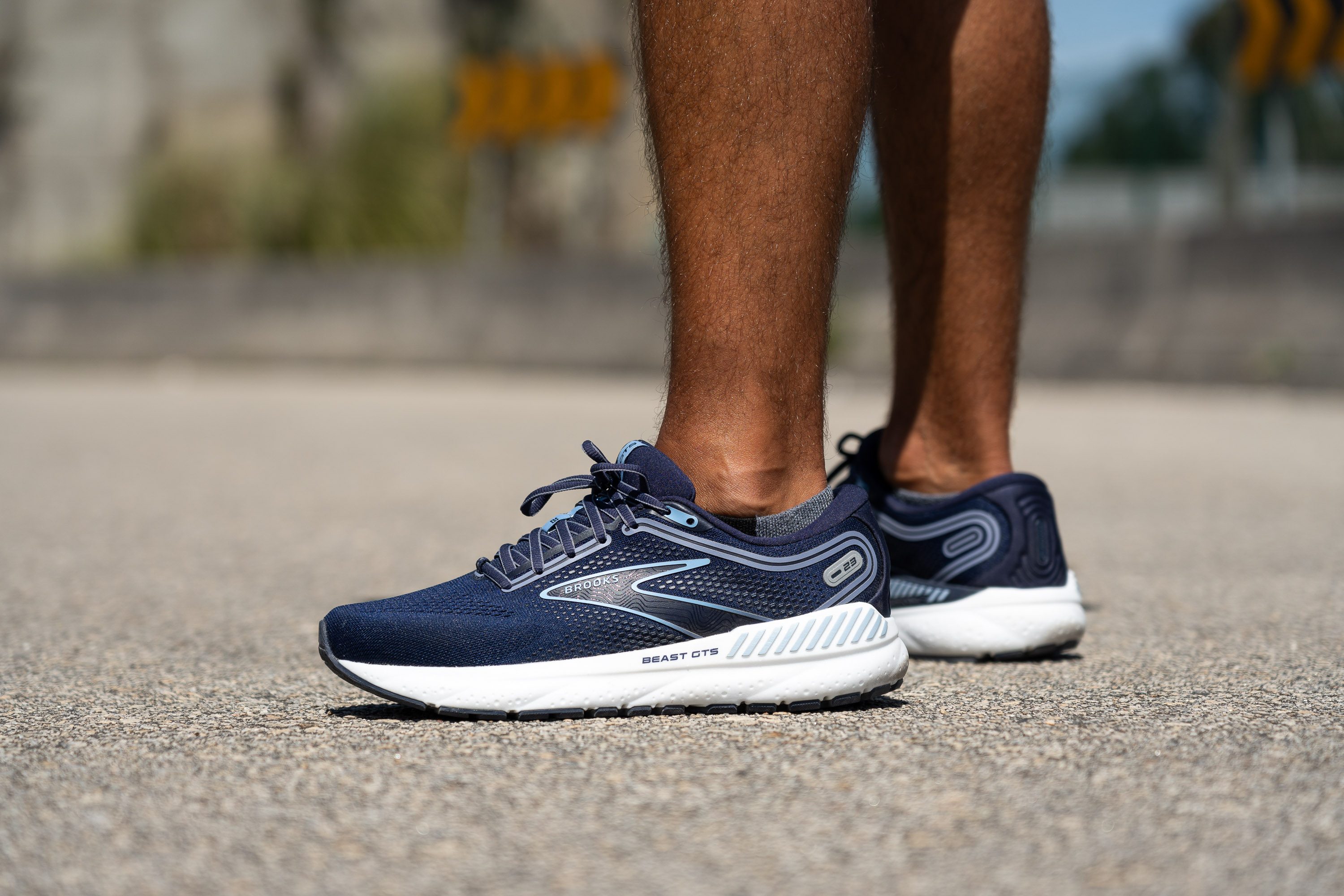
Who should NOT buy
If you like running without feeling like you're carrying extra weight like us, you might want to explore other lightweight and stable shoes. Consider options like the Hoka Arahi 6 or the Brooks Adrenaline GTS 23, especially if you're a Brooks enthusiast.
Another thing to note is its firmer feel. If you're after a plush ride, the Saucony Tempus might be worth checking out based on our lab test.
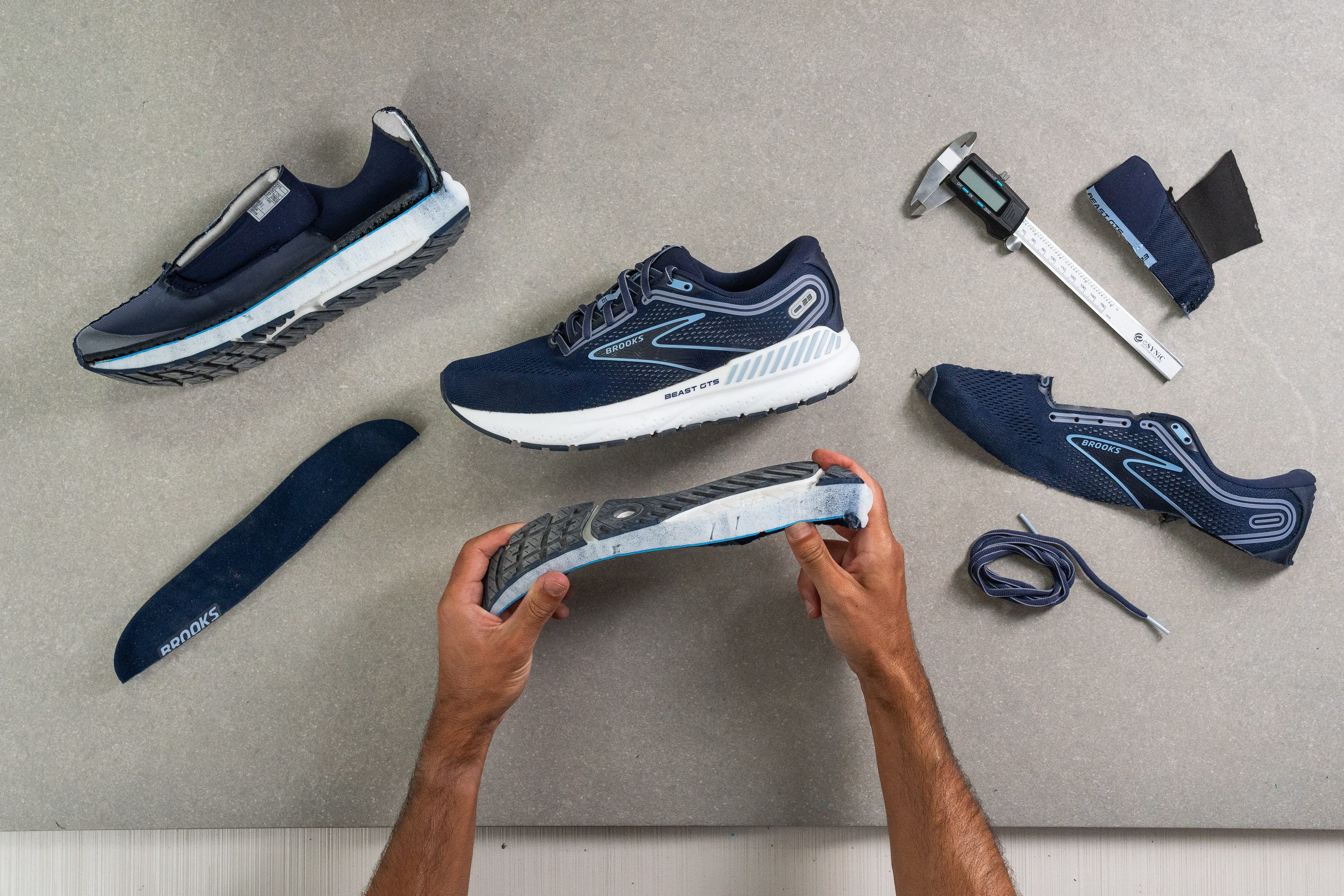
Cushioning
Heel stack
For a shoe designed for heel strikers craving stability, we figured there'd be a bunch of foam in the heel—and we found it.
Clocking in at 36.4 mm, there's plenty of cushion!
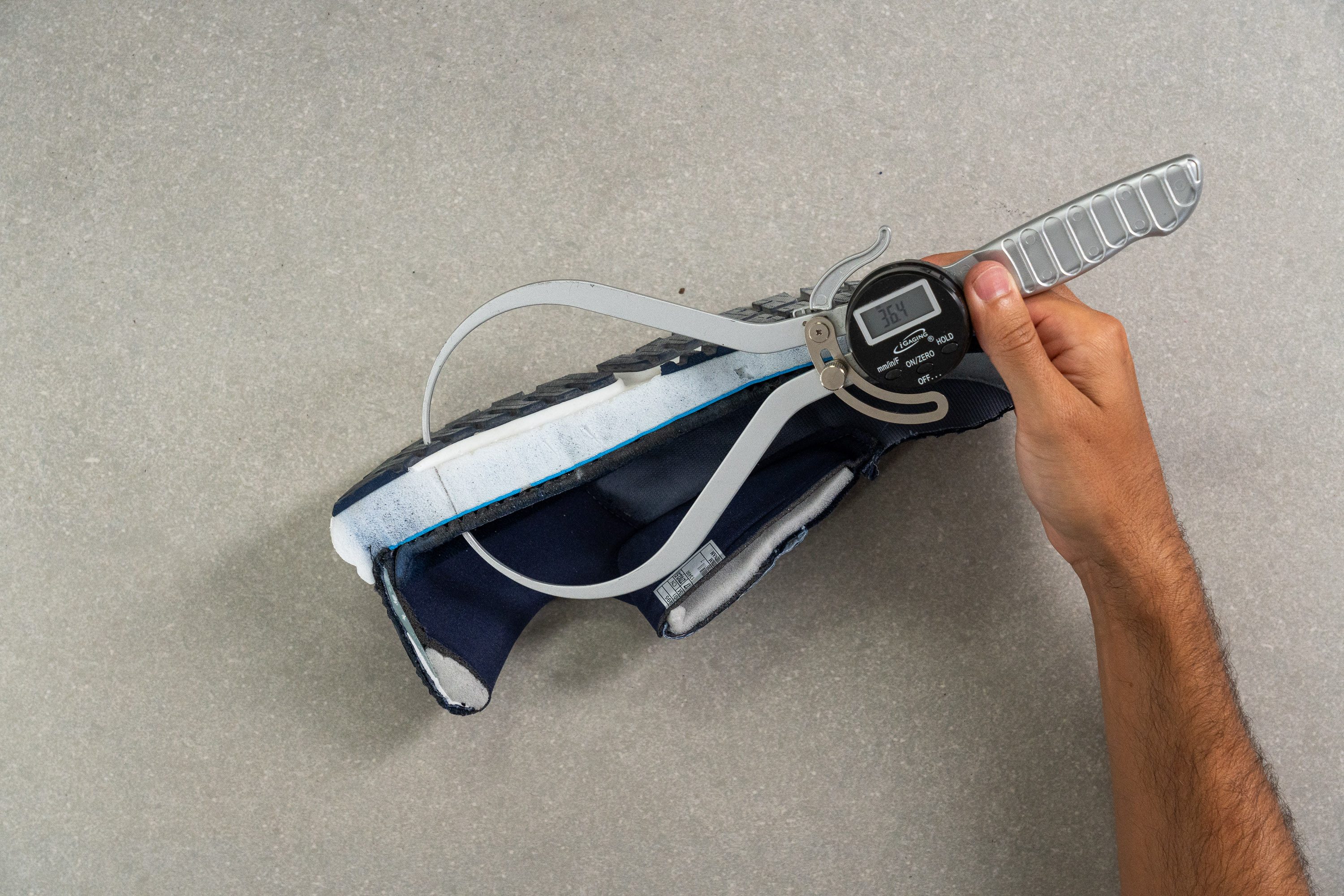
| Beast GTS 23 | 36.4 mm |
| Average | 34.8 mm |
Forefoot stack
The forefoot stack measures 24.5 mm, landing it right in the average in terms of stack height. But remember, this shoe is geared towards heel strikers.
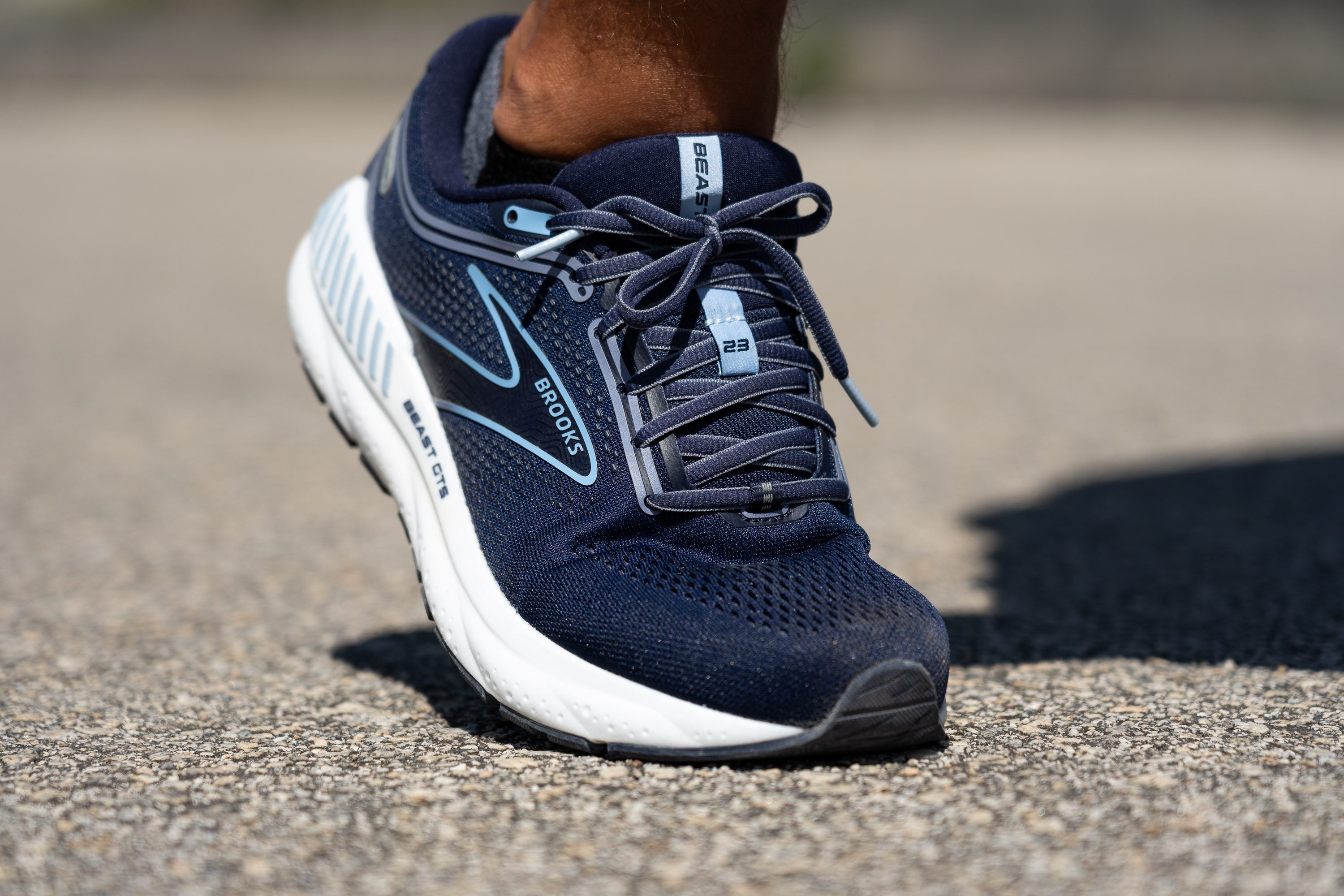
So, adding extra foam to the forefoot wouldn't have made sense for us. And it's enough if you land with your forefoot or midfoot.
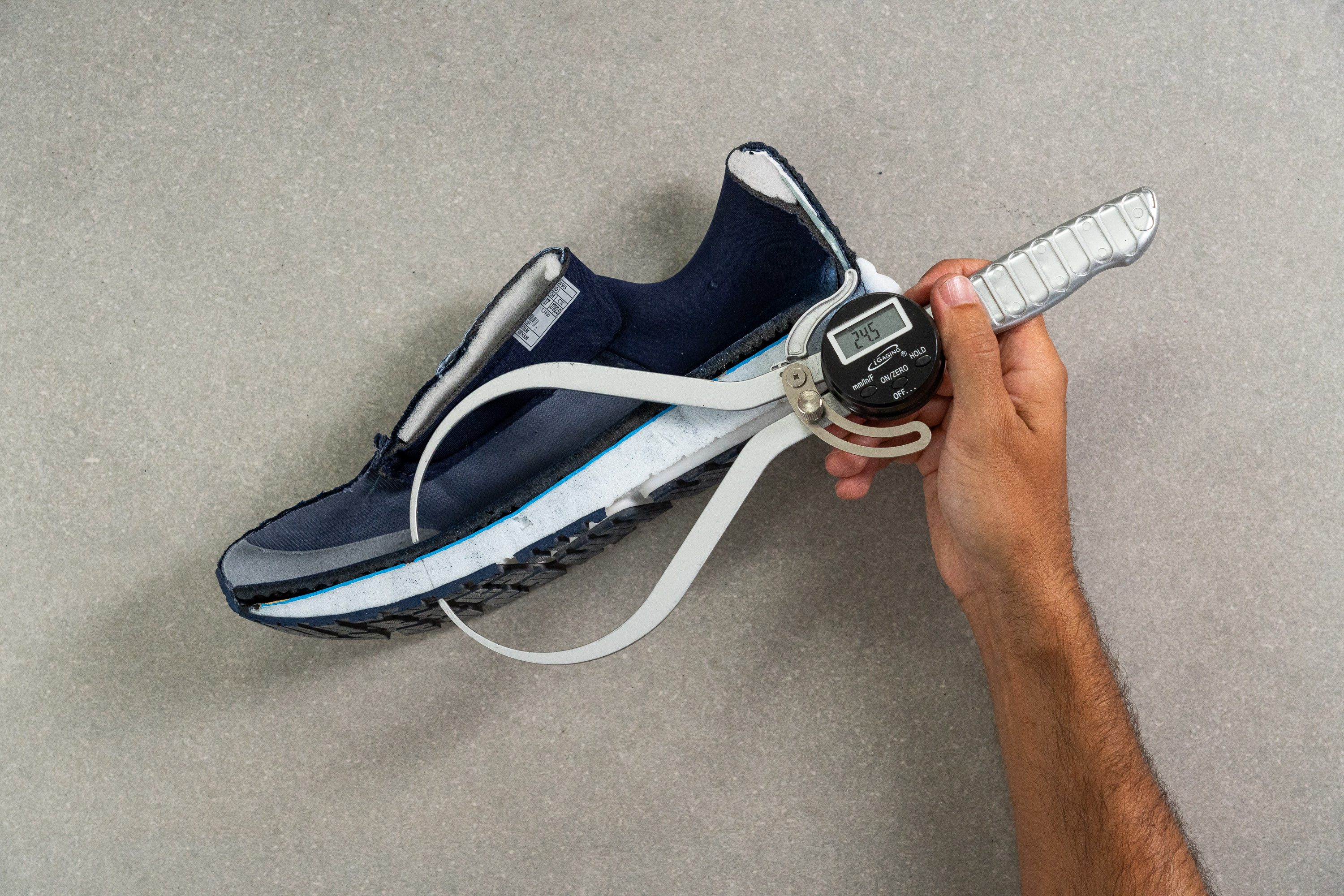
| Beast GTS 23 | 24.5 mm |
| Average | 26.2 mm |
Drop
When we subtract the forefoot measurement from the heel, we get an 11.9-mm heel-to-toe drop.
Brooks claimed a 12-mm drop and it's quite a feat for a brand to nail it this closely. Well done, guys!
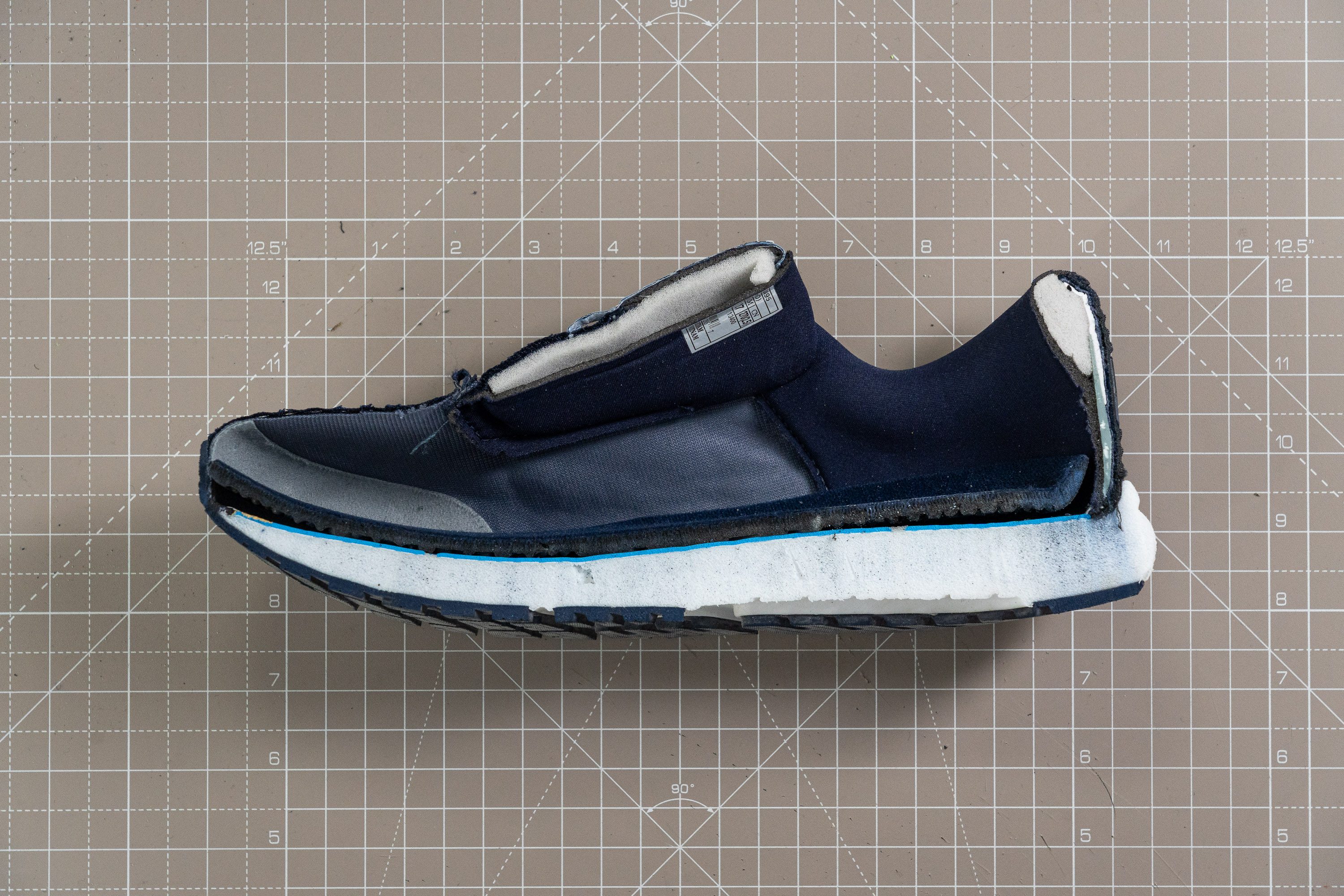
| Beast GTS 23 | 11.9 mm |
| Average | 8.6 mm |
Midsole softness
When we examined the midsole, our durometer registered a 25.3 HA reading. Brooks uses DNA Loft v3 in this model—it's their premium foam for training, and it's infused with nitrogen for better bounce and resilience.
The feel underfoot isn't overly soft or too firm, although it leans towards the latter. It has a nice balance which is perfect for this shoe, especially since this model prioritize stability above all.
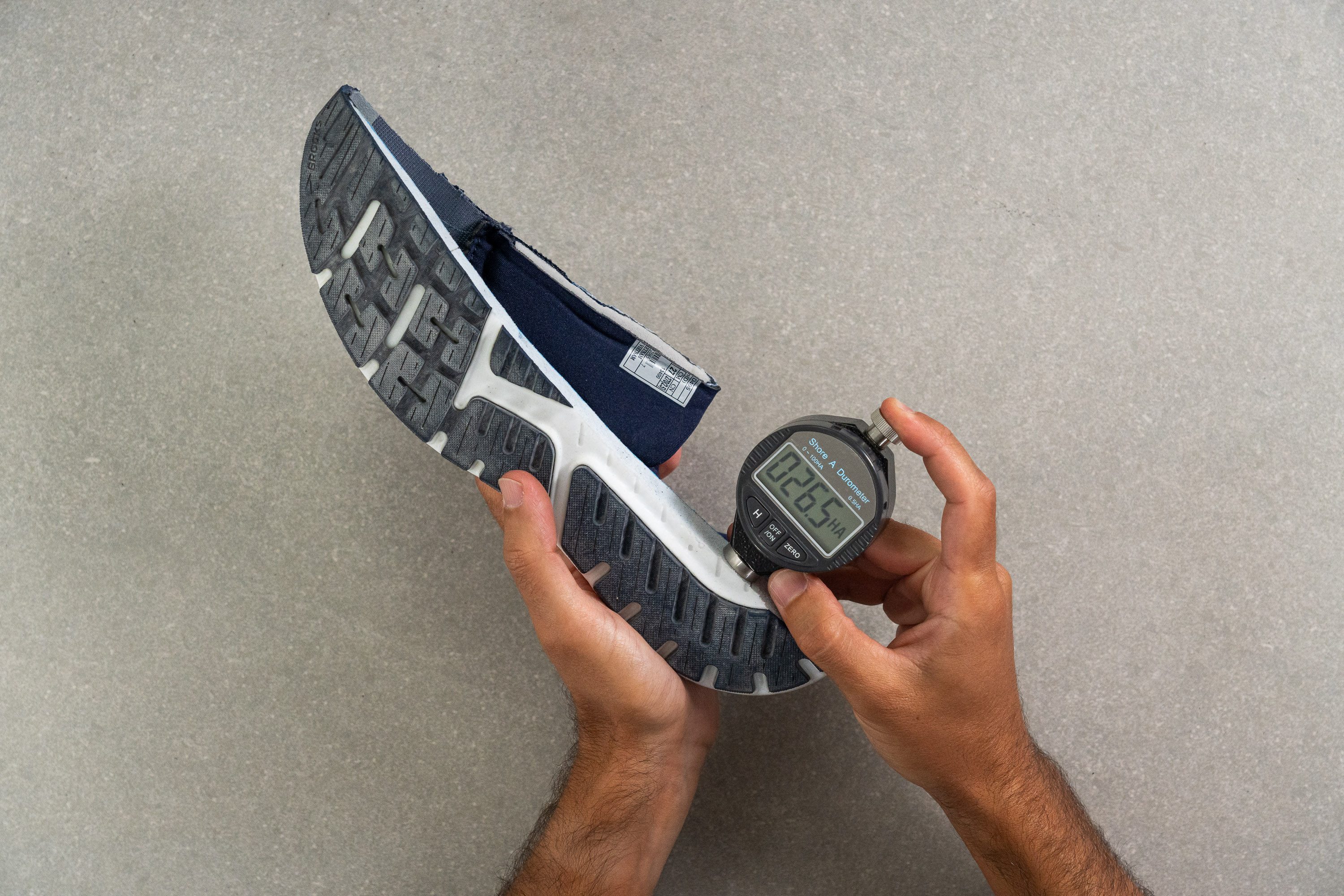
| Beast GTS 23 | 25.3 HA |
| Average | 20.4 HA |
Size and fit
Size
Brooks Beast GTS 23 fits true to size (66 votes).
Internal length
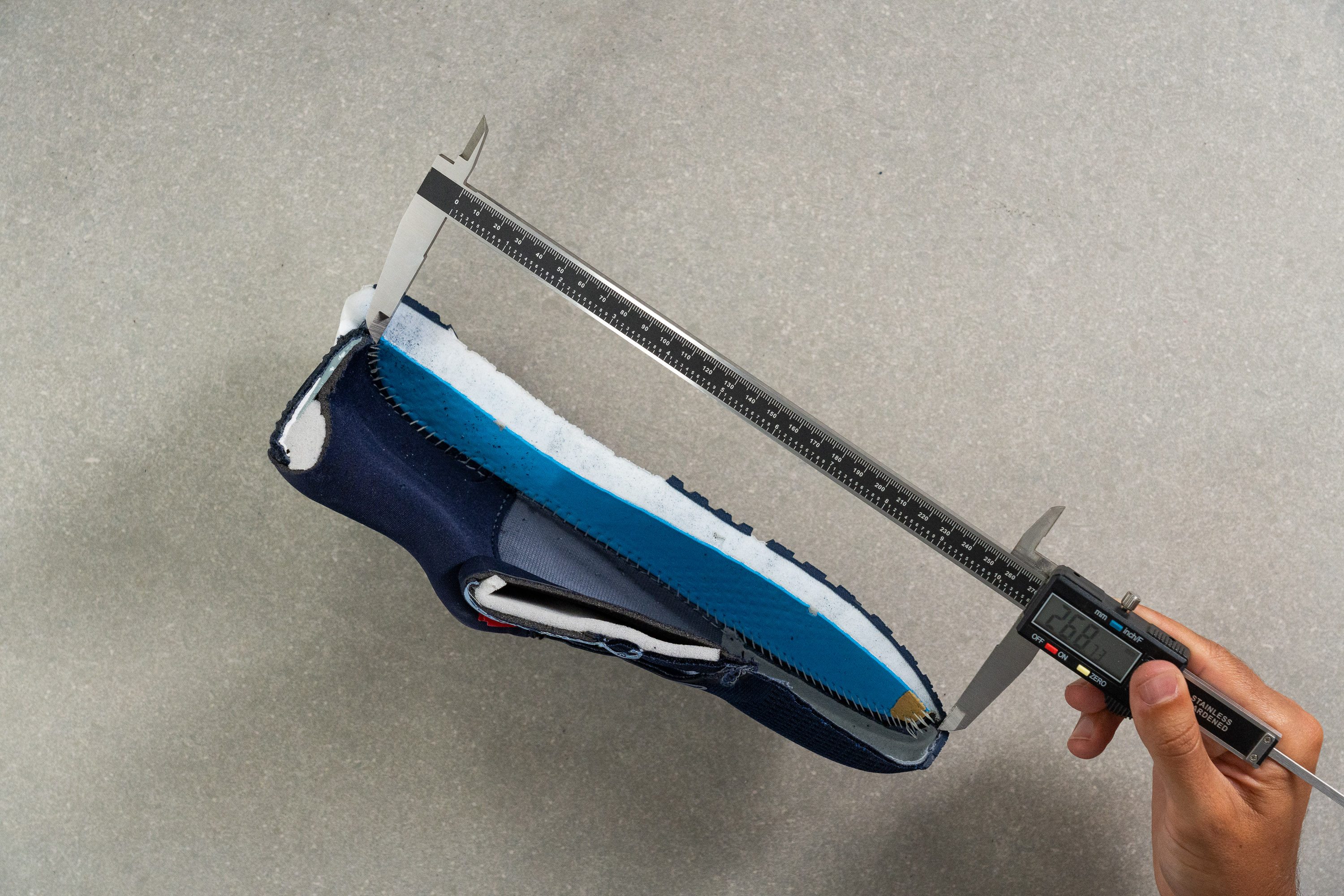
| Beast GTS 23 | 268.7 mm |
| Average | 269.4 mm |
Width / Fit
This shoe also earns our wide feet seal of approval. We found its widest part of the upper to be 102.2 mm, showcasing its roomy design.
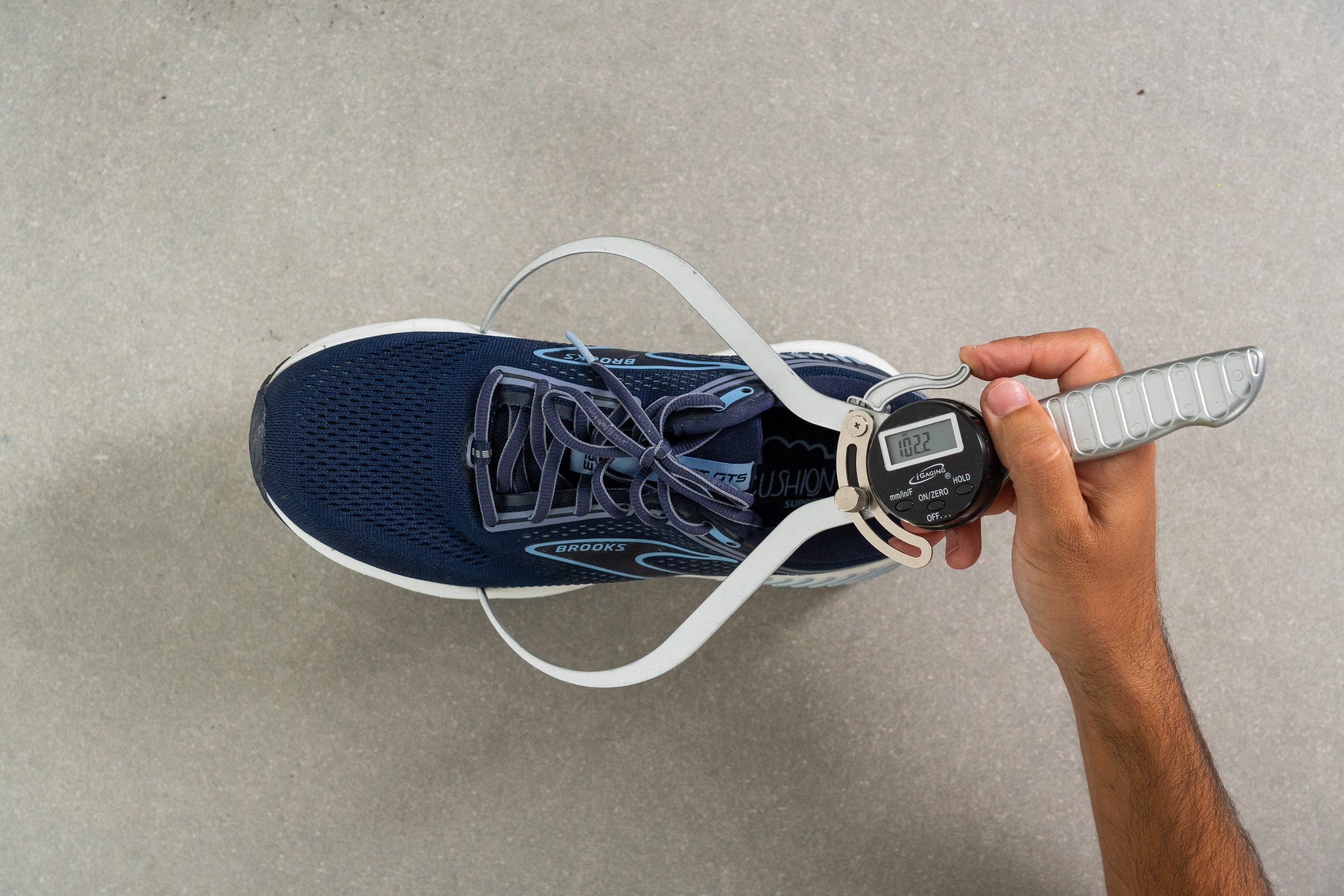
This test follows an older methodology, which is why you don't see recently tested shoes in the chart. Results from different methodologies can not be compared.
| Beast GTS 23 | 102.2 mm |
| Average | 98.5 mm |
Toebox width
While the big toe area isn't exceptionally wide at 78.3 mm, it offers more room than most other shoes. We believe this makes it an excellent choice for those with wide feet—there's no question about it.
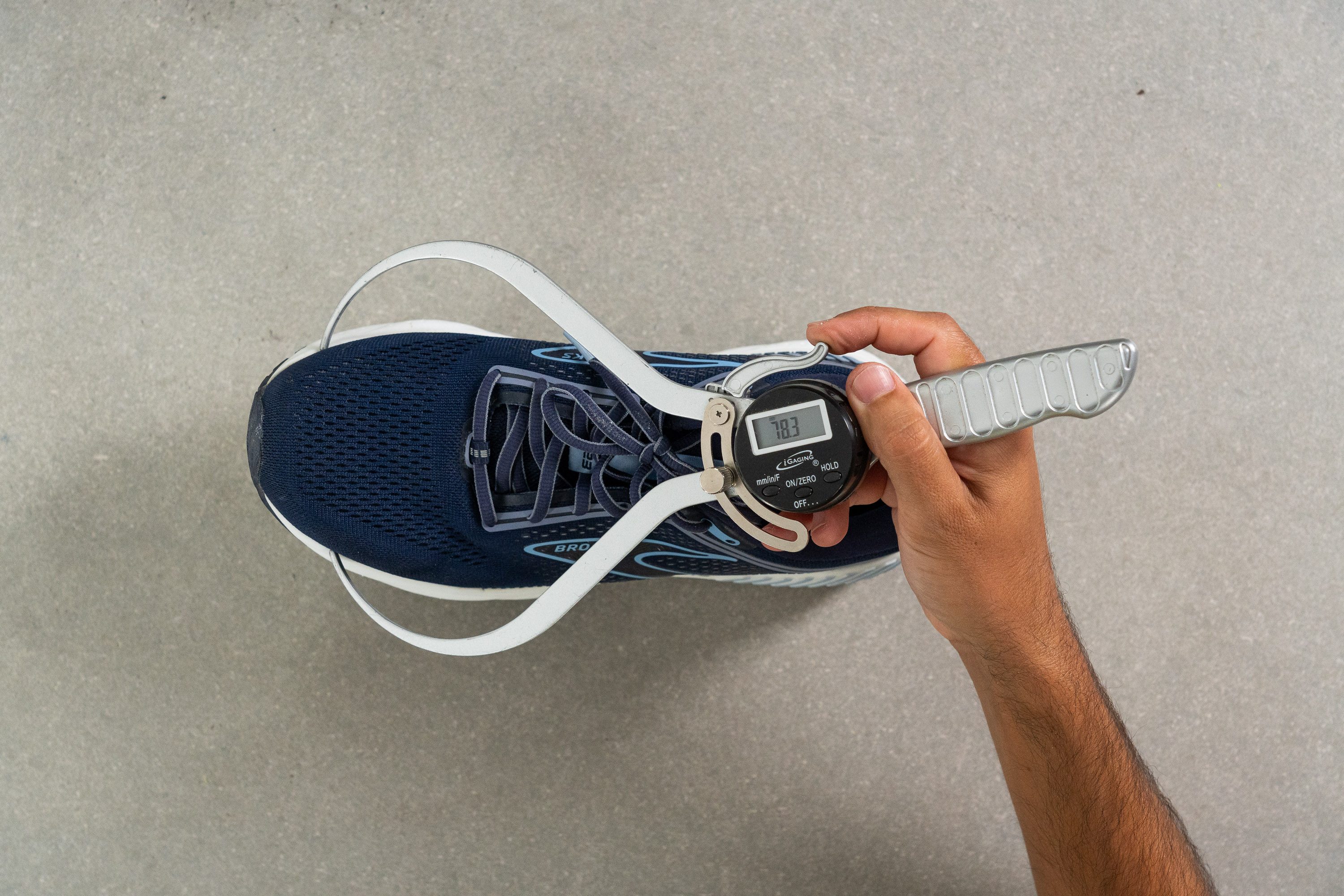
This test follows an older methodology, which is why you don't see recently tested shoes in the chart. Results from different methodologies can not be compared.
| Beast GTS 23 | 78.3 mm |
| Average | 78.4 mm |
Flexibility / Stiffness
In stark contrast to the torsional stiffness and the heel, our 90-degree bend test (21.3N) revealed the shoe to be reasonably flexible.
This is beneficial because it proves enhanced comfort for everyday use without sacrificing stability. It's flexible lengthwise but remains torsionally rigid. Whether you're walking around the neighborhood, shopping, or heading to the gym, these shoes will be up to the task.
This test follows an older methodology, which is why you don't see recently tested shoes in the chart. Results from different methodologies can not be compared.
| Beast GTS 23 | 21.3N |
| Average | 28.1N |
Stiffness in cold (%)
They don't become much stiffer in cold weather. After exposing them to freezing temperatures and testing again, we found it took only 28.0N to bend them to 90 degrees.
With a 31.5% difference, it outdoes most other shoes in the market. And this is the kind of performance we anticipate from a shoe priced at $160 despite having an EVA-based foam.
| Beast GTS 23 | 32% |
| Average | 33% |
Weight
And that extra weight really shows. Tipping the scales at 12.4 oz (352g), this shoe feels like a tank.
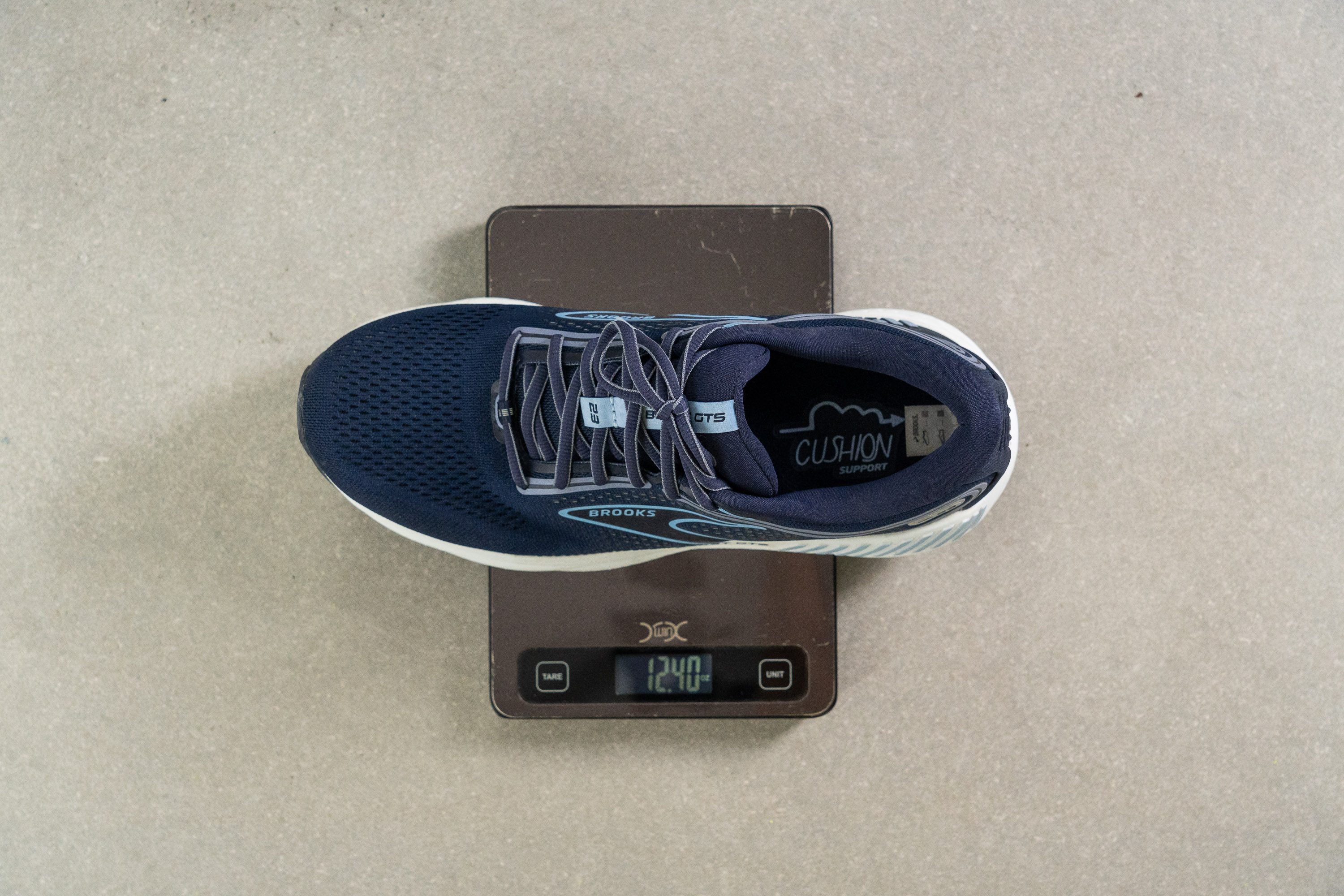
| Beast GTS 23 | 12.4 oz (352g) |
| Average | 9.3 oz (264g) |
Breathability
The Brooks GTS 23 might not be the most breathable shoe out there, but it sure holds its own—especially for a shoe geared toward comfort. We gave it a solid 4/5 in our lab tests.
Sure, it's not a record-breaking performance, but it's still a great score, suitable for most warm climates. Our light test also did confirm the presence of breathability holes, which Brooks incorporated to allow airflow in the toebox and medial areas.
Now, for a closer look, our microscope is unrivaled.
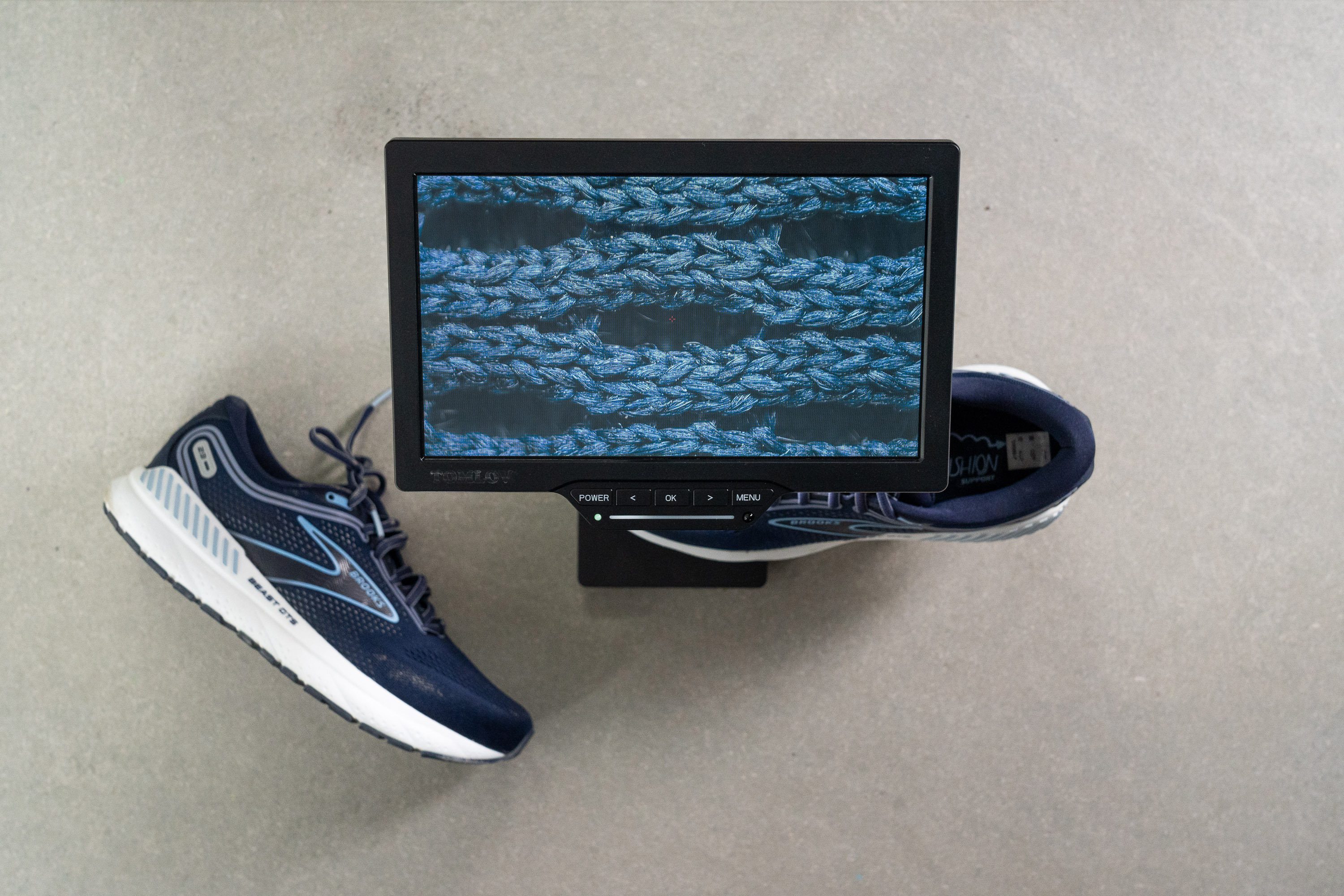
These breathability holes are easily visible, but if you look closely, you'll see also a thin fabric layer underneath that stops the shoe from getting a perfect 5/5.
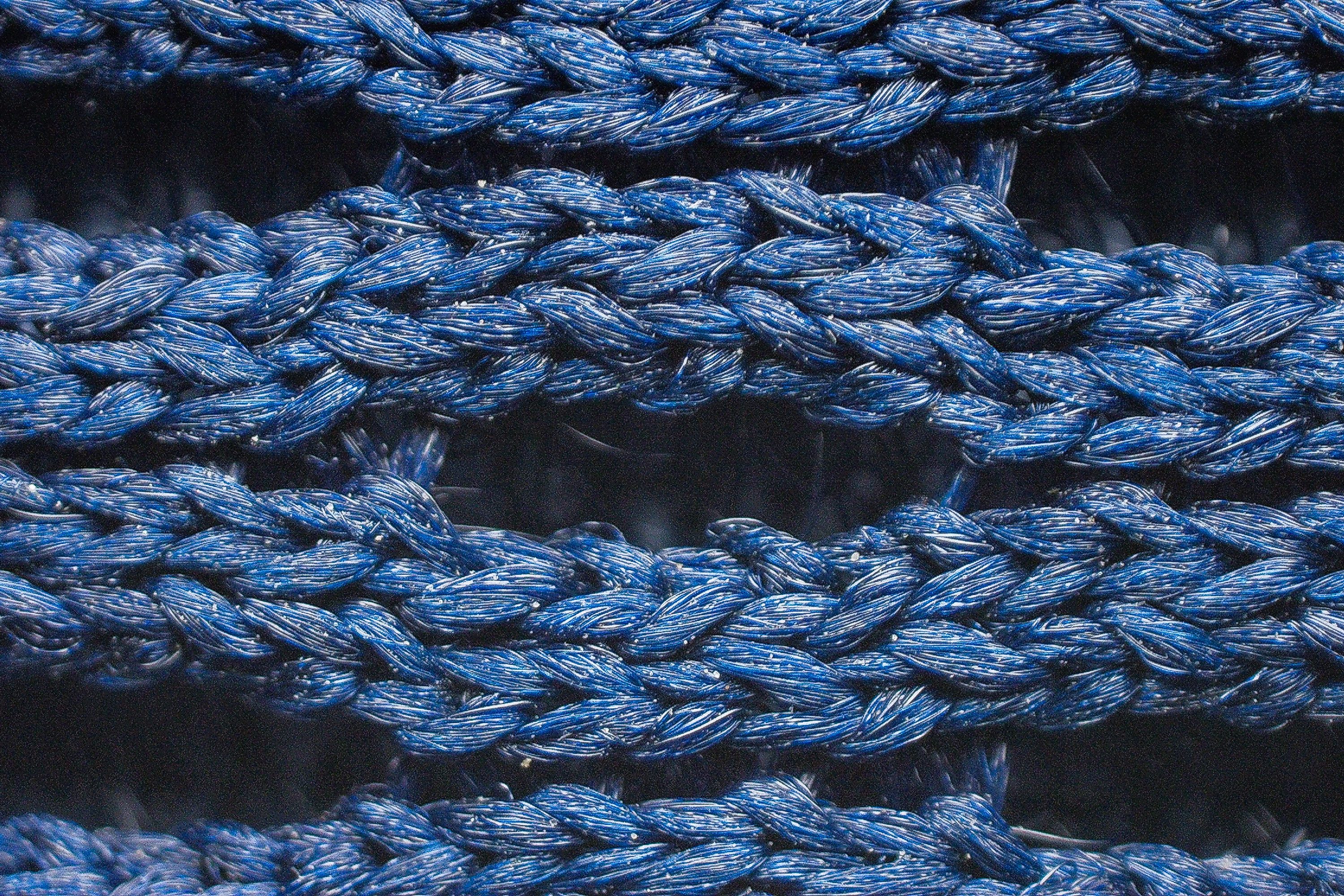
However, that fabric layer contributes to the shoe's overall comfort. In our opinion, Brooks made a smart choice, trading off a touch of airflow for a ton of enhanced toebox comfort.
| Beast GTS 23 | 4 |
| Average | 3.7 |
Stability
Lateral stability test
This is a stability shoe, and it truly delivers on that promise. While other features matter, the Beast GTS 23 definitely checks off the most crucial box for us.
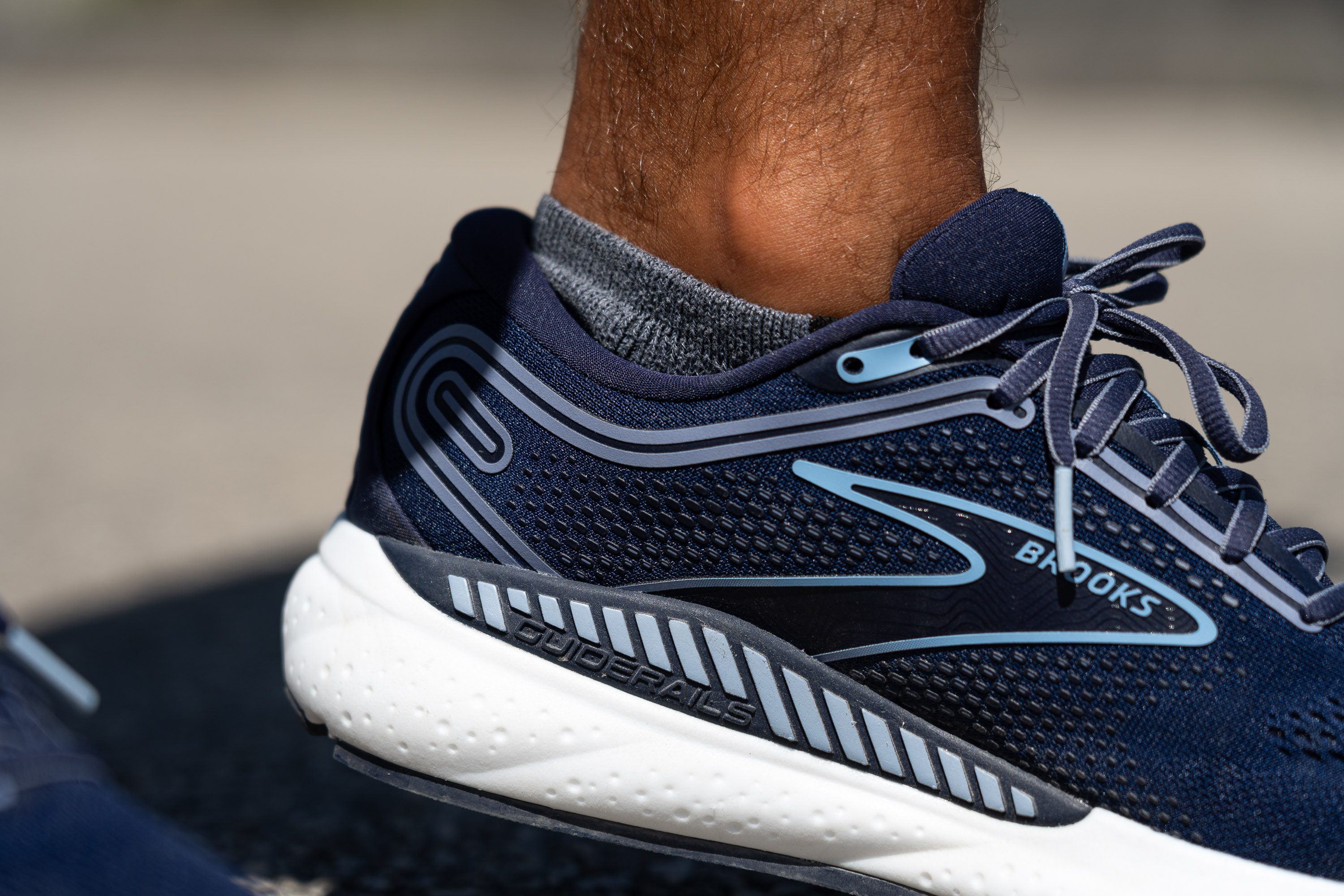
The primary source of stability in these shoes is Brooks' GuideRails technology. This system helps support your body's natural movement, limiting any unnecessary shifts.
Torsional rigidity
For proper stability, brands often need to give up some flexibility. This is why the shoe feels so stiff in our torsional test—earning it a score of 4/5 in our lab.
| Beast GTS 23 | 4 |
| Average | 3.5 |
Heel counter stiffness
The story continues with the heel counter—where we encountered again a rigid design. While this is great for stability-driven runners, those in search of a softer, more comfort-focused heel might be disappointed.
If this sounds like too much, consider giving the ASICS Kayano 29 a look.
| Beast GTS 23 | 5 |
| Average | 2.9 |
Midsole width - forefoot
With a width of 113.1 mm, the forefoot offers ample space for secure landings, and we see no issues at all with it.
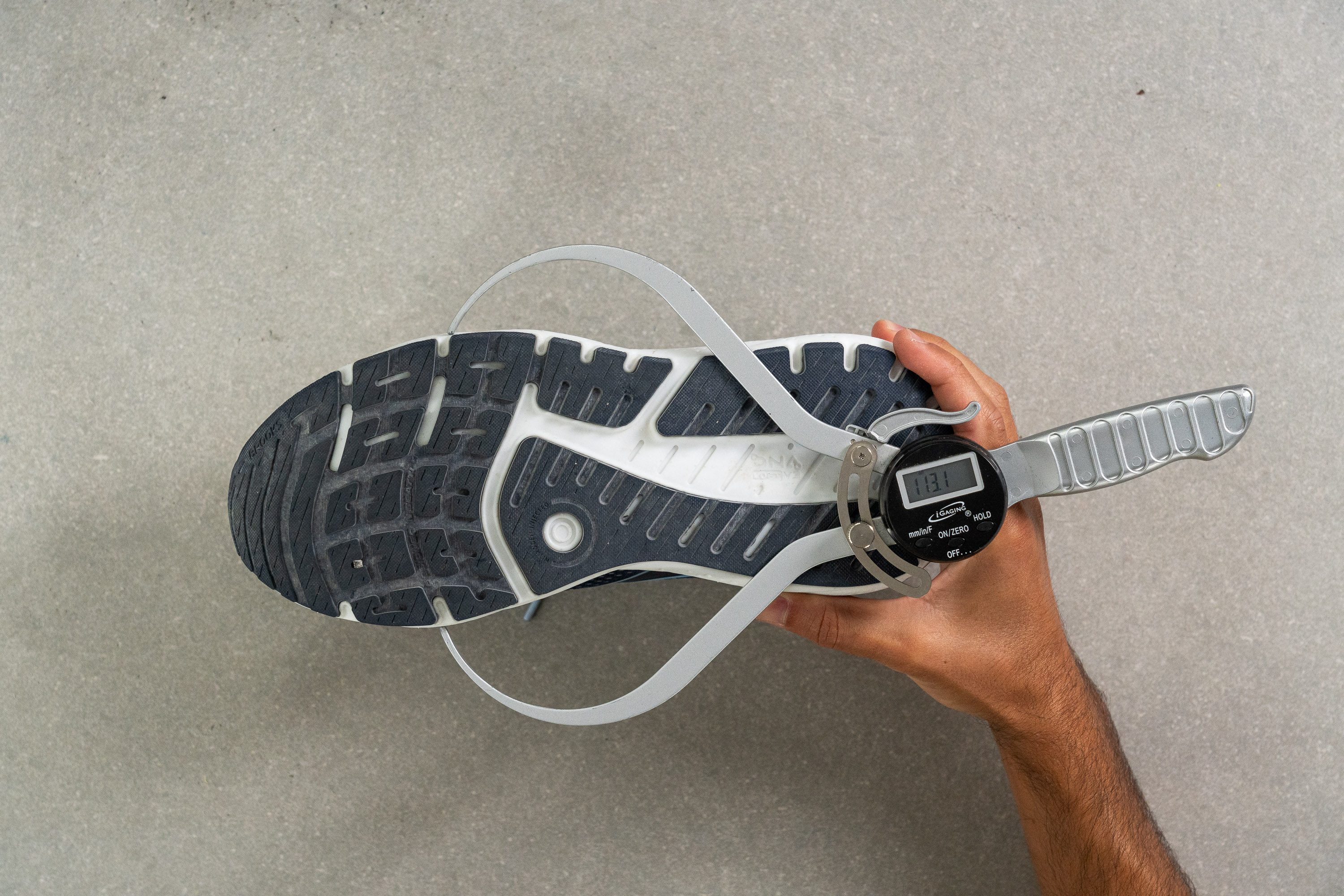
| Beast GTS 23 | 113.1 mm |
| Average | 114.4 mm |
Midsole width - heel
On the other hand, the heel has more to discuss. Brooks aimed for maximum stability with an ultra-wide design, catering to heel strikers who value this feature.
Measuring 102.7 mm, it's impressively wide!
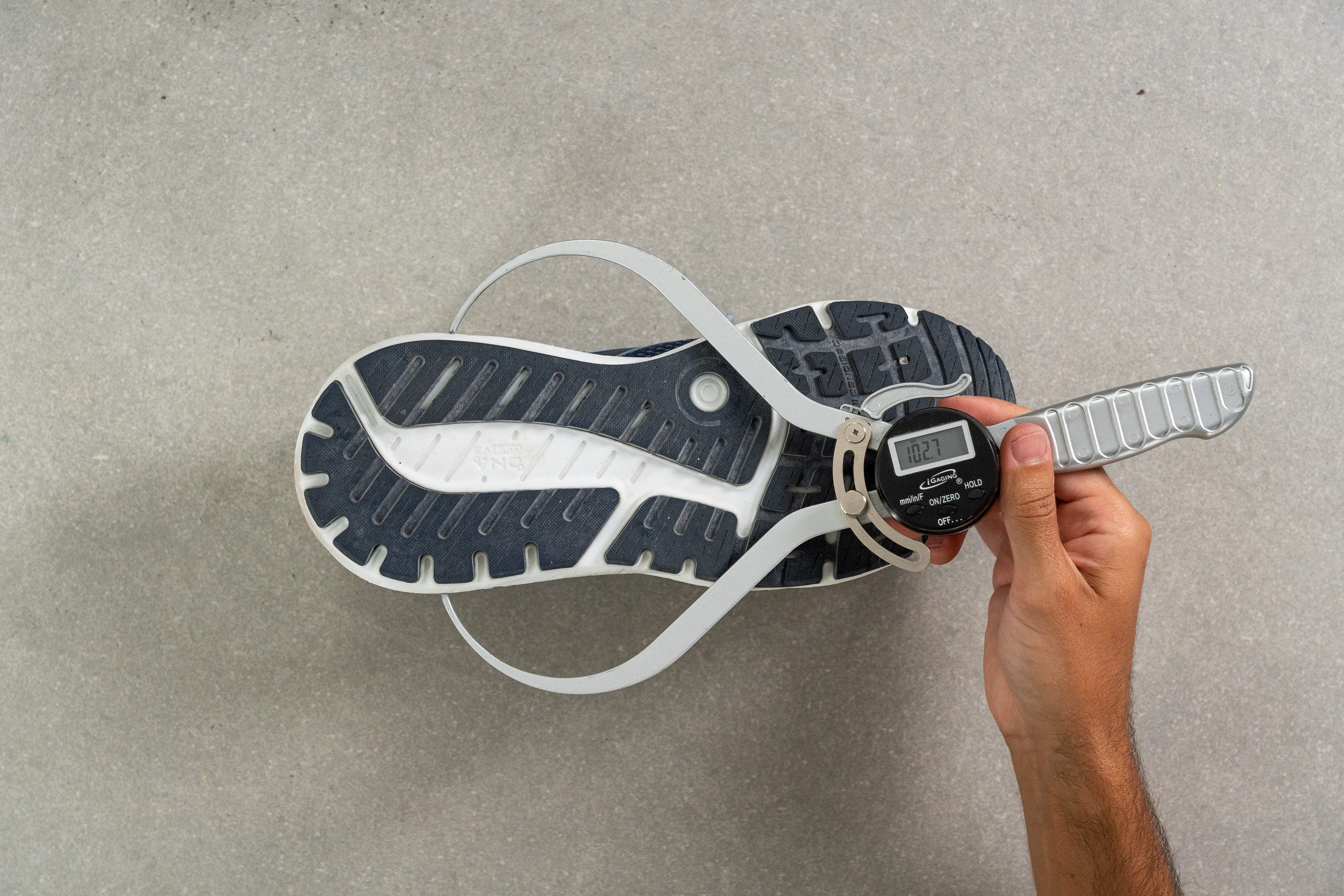
| Beast GTS 23 | 102.7 mm |
| Average | 90.6 mm |
Durability
Toebox durability
The engineered mesh feels cozy, but that's often a sign of a toebox lacks durability. That additional fabric layer we mentioned helps a bit, but a 2/5 score still isn't impressive.
It's true that most shoes these days barely scrape by with a 1/5, but we expected better.
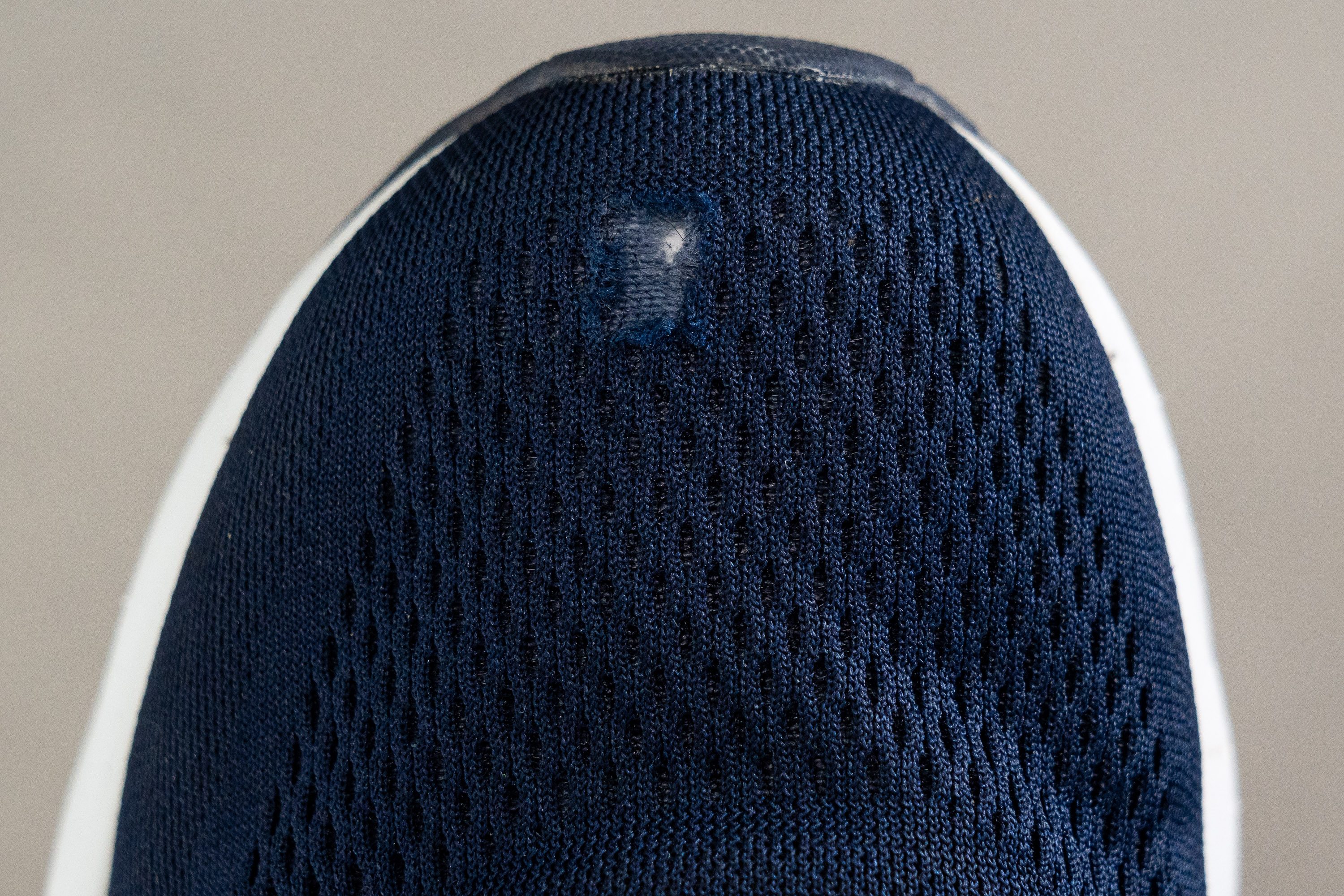
| Beast GTS 23 | 2 |
| Average | 2.6 |
Heel padding durability
The heel padding mirrors the toebox story.
With a score of 2/5, it's not the worst. However, we know Brooks can step it up.
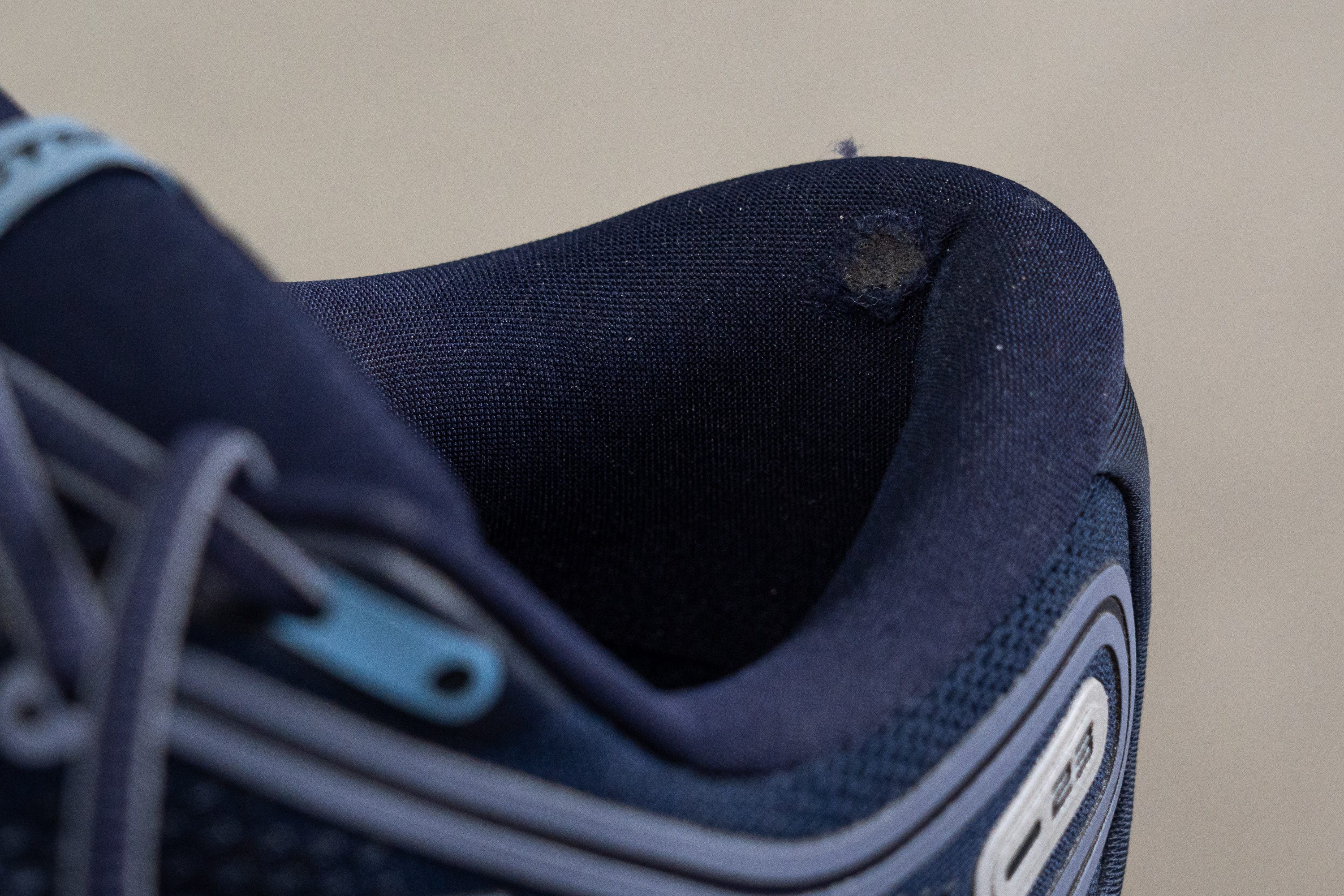
| Beast GTS 23 | 2 |
| Average | 3.4 |
Outsole hardness
With a reading of 67.9 HC on our durometer, this Brooks model boasts a softer rubber than we typically see.
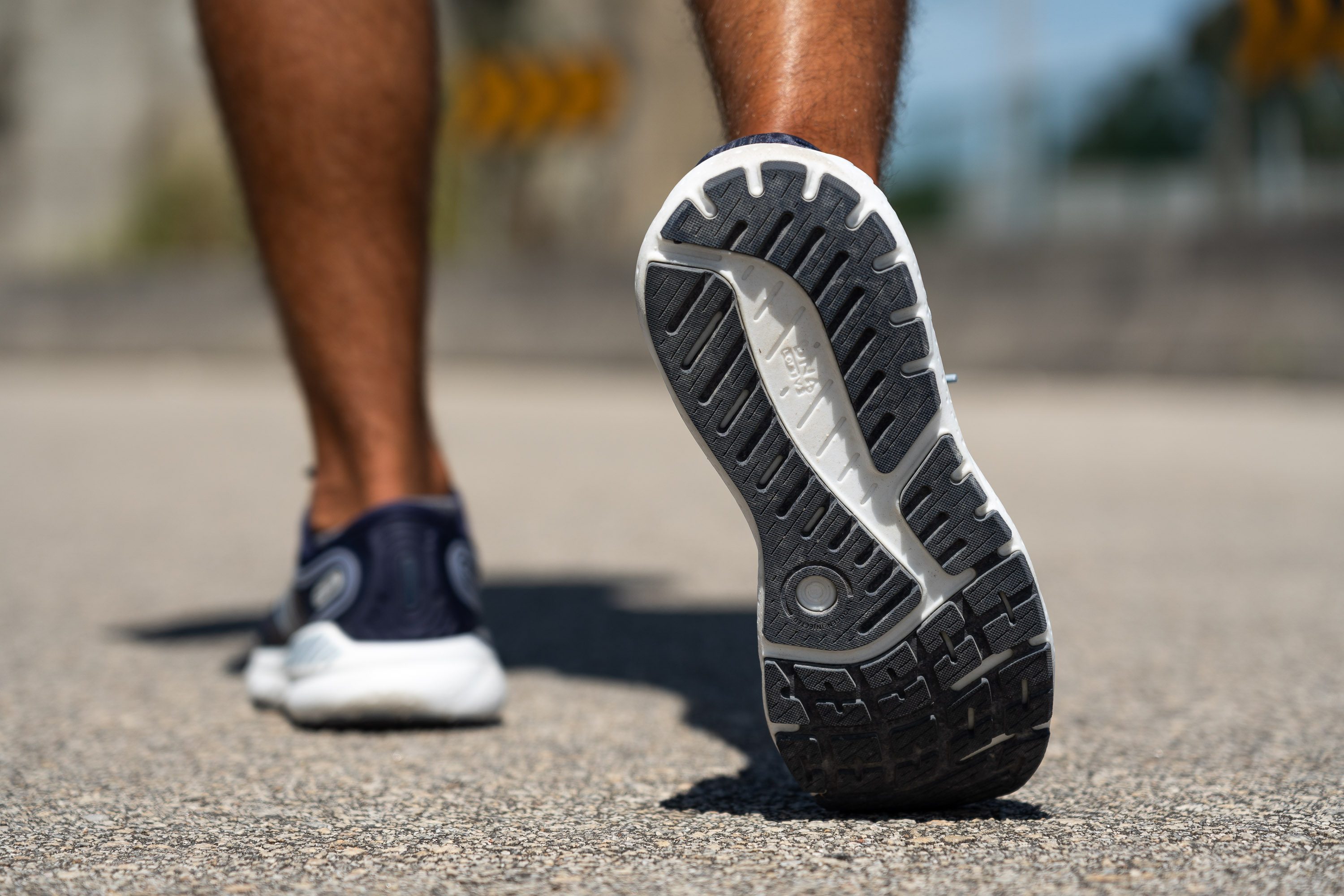
While it raises some eyebrows about durability, it's worth noting that factors like rubber formulation play a big part too.
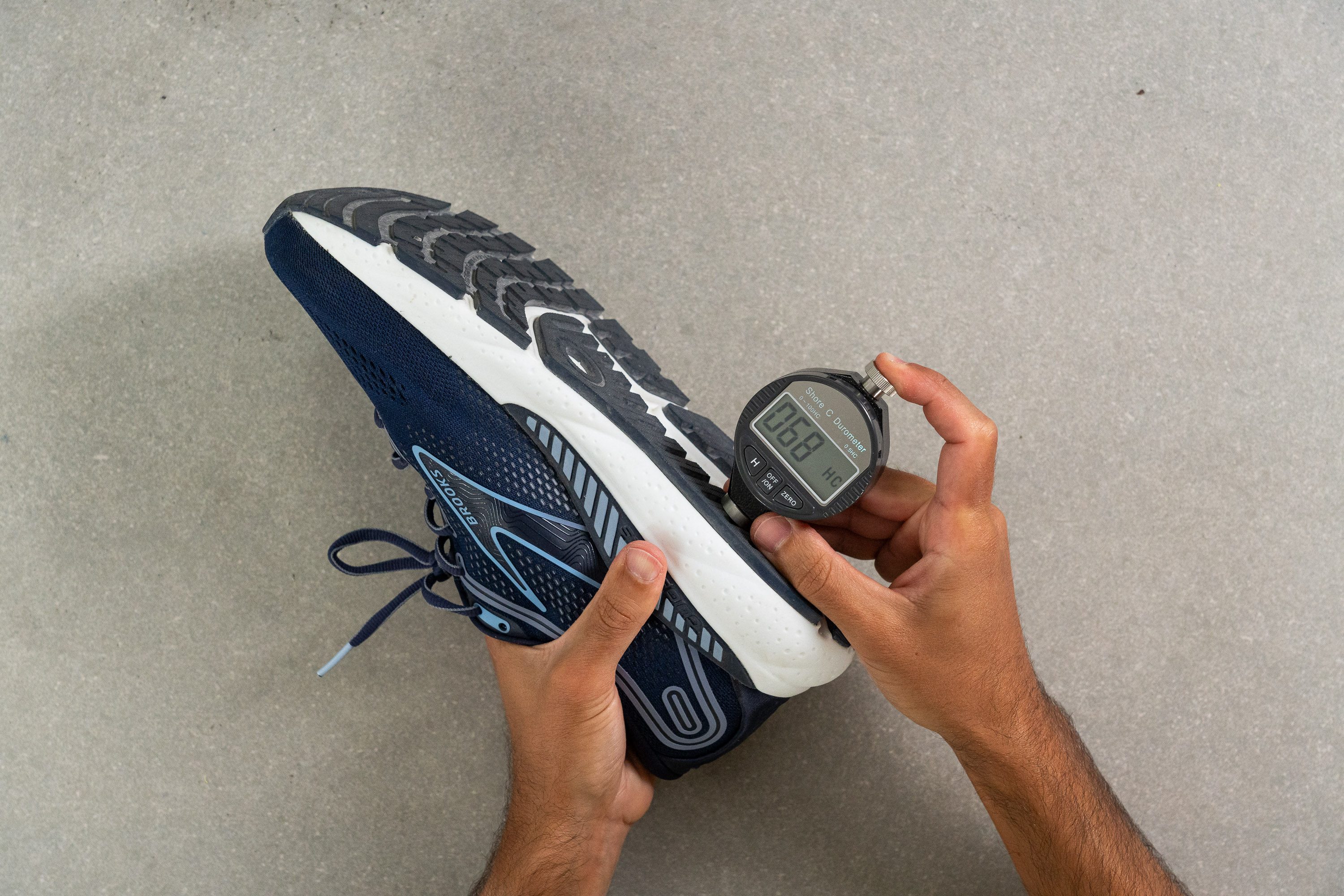
| Beast GTS 23 | 67.9 HC |
| Average | 79.2 HC |
Outsole durability
With a $160 price tag, we're looking for some solid durability, and the outsole doesn't disappoint.
Initially, the soft rubber made us nervous, but our lab tests eased our concerns. Using our Dremel, we only managed a tiny 0.5 mm dent in the outsole—that's impressive!
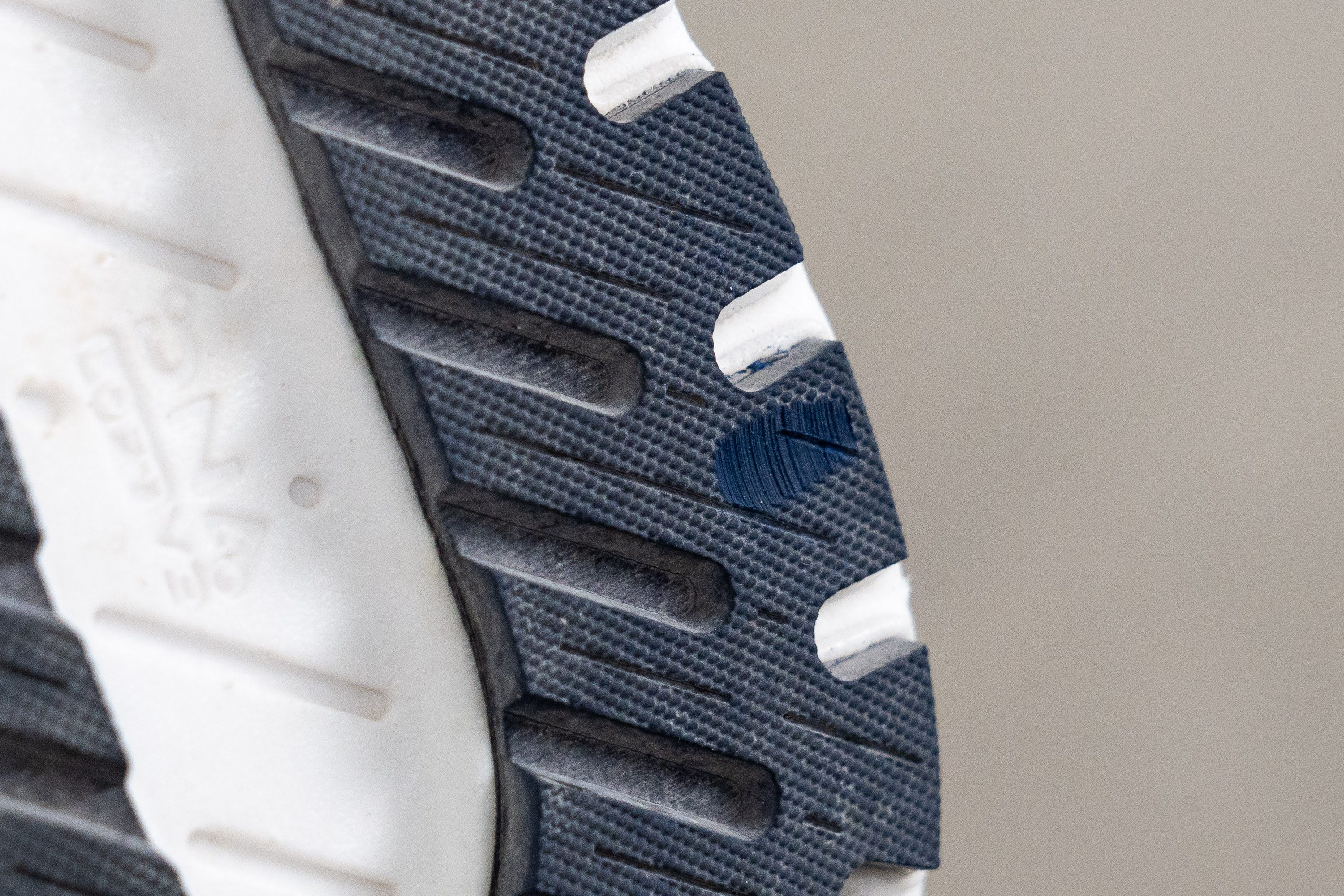
| Beast GTS 23 | 0.5 mm |
| Average | 1.1 mm |
Outsole thickness
Brooks isn't taking any chances. They've beefed up the outsole with 4.4 mm of rubber, which is one millimeter more than what we typically see.
They're clearly aiming to give the outsole a long life, but this might come with a trade-off in terms of weight...
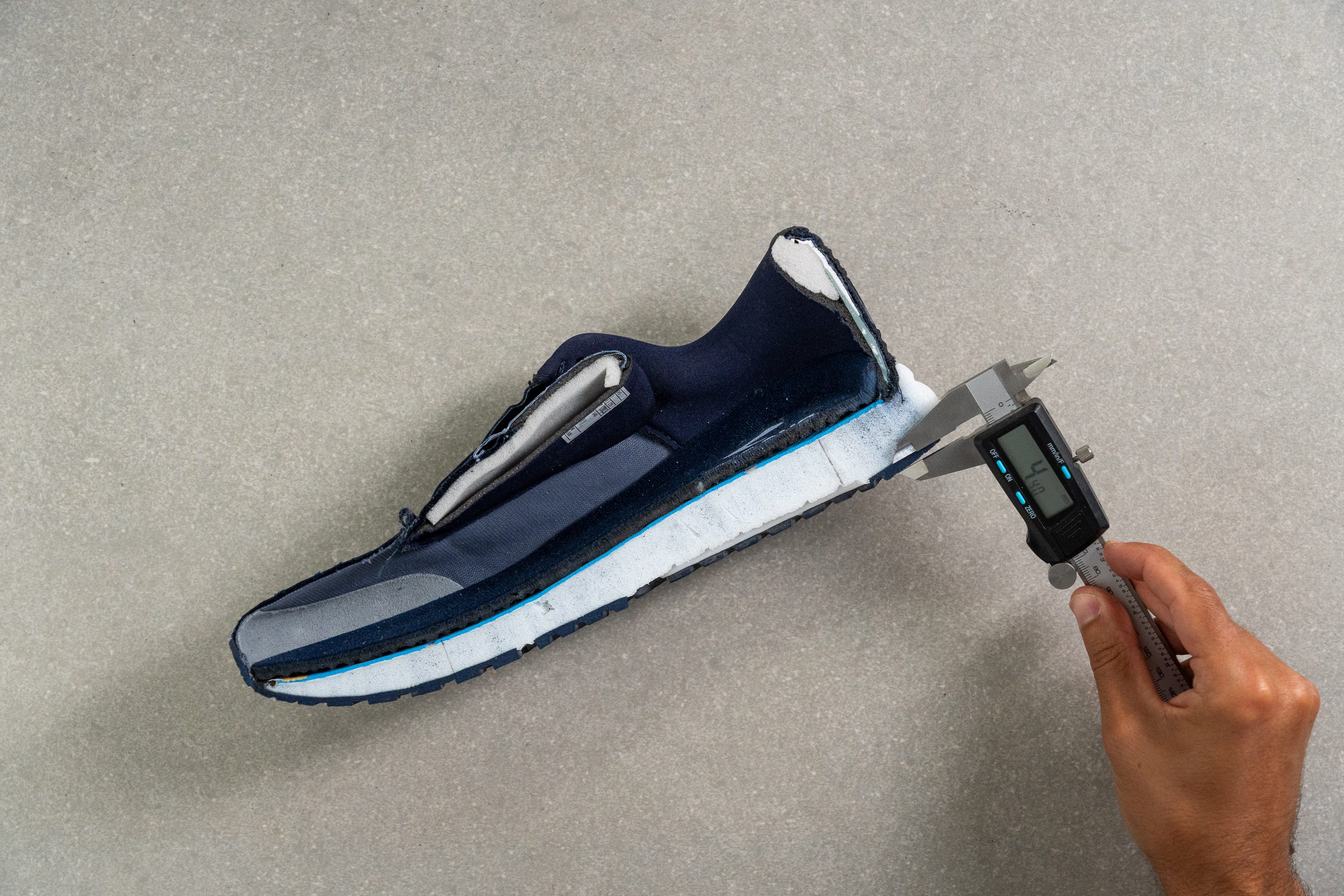
| Beast GTS 23 | 4.4 mm |
| Average | 3.2 mm |
Misc
Insole thickness
For a shoe focused on comfort, we're happy to see it comes with a generous 5.8-mm insole.
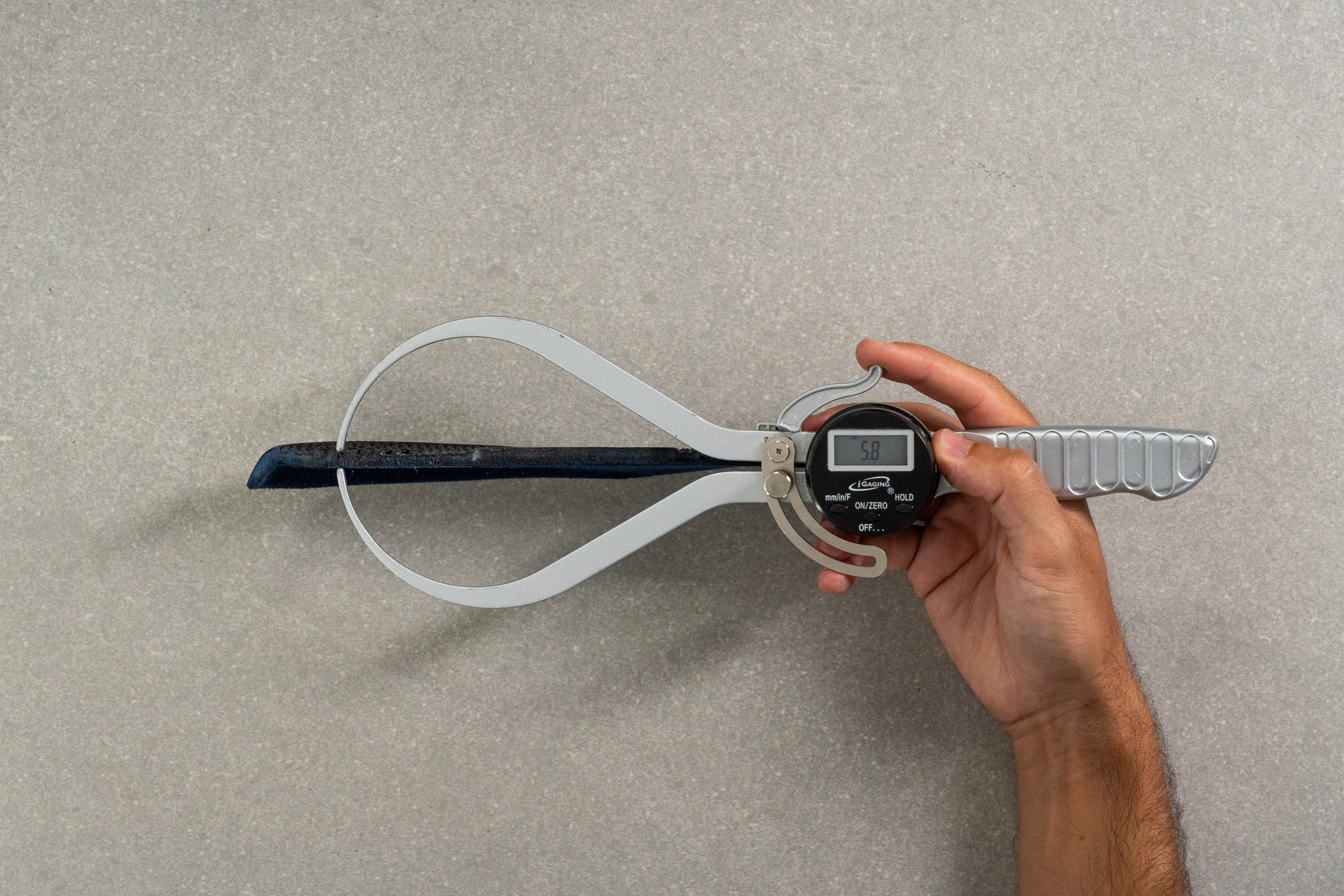
| Beast GTS 23 | 5.8 mm |
| Average | 4.5 mm |
Removable insole
The shoe's insole is easy to remove, letting you seamlessly insert insoles from other shoes or third-party orthotics. Great!
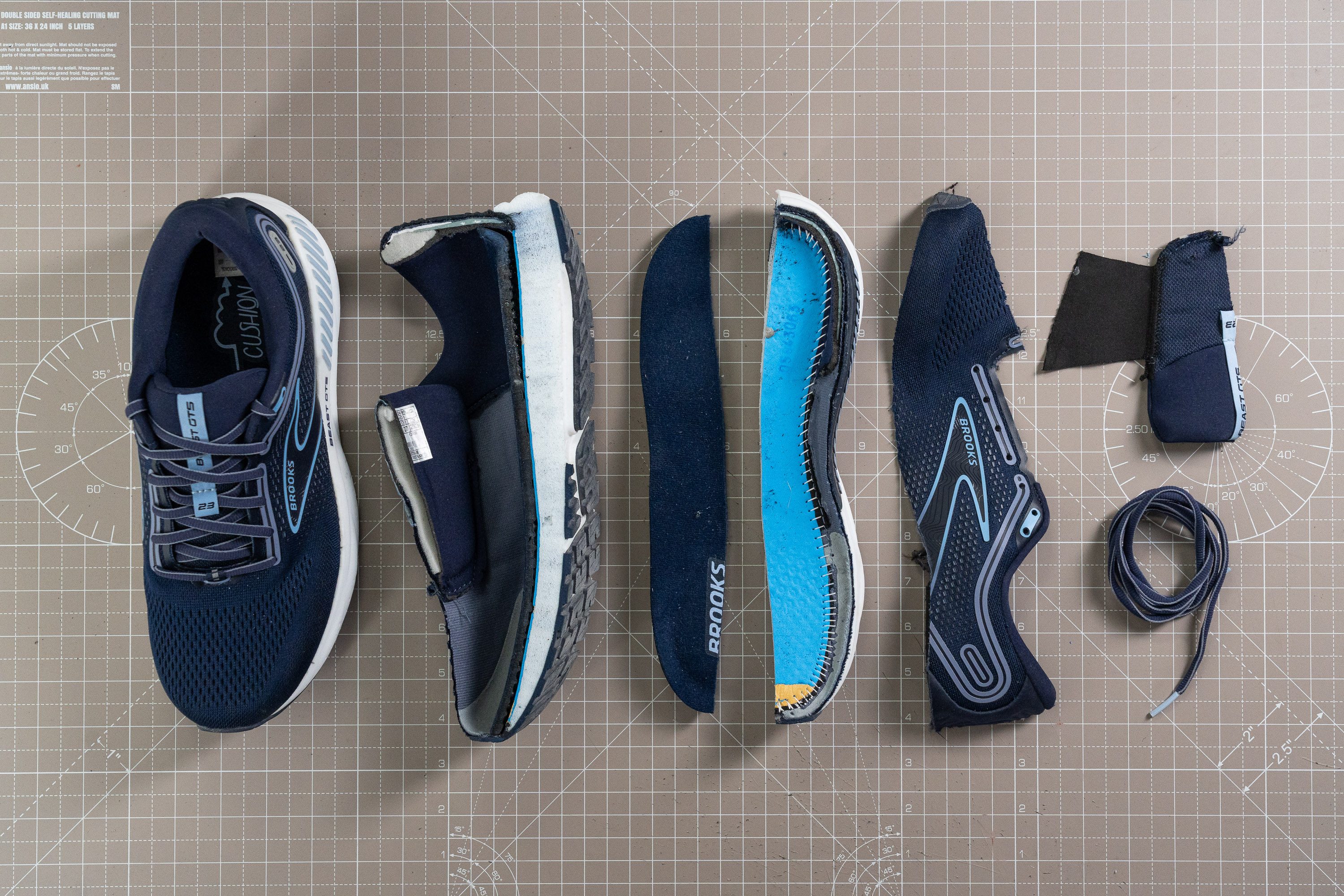
| Beast GTS 23 | Yes |
Midsole softness in cold (%)
DNA Loft v3 has EVA as its core, and that's typically a sign that the foam will become significantly harder in cold weather. Just how hard? Well, each shoe reacts differently, but we often huge differences after leaving the shoe in freezing temperatures for 20 minutes.
With a 36.8 HA reading on our durometer, brace yourself: in winter, this shoe is likely to feel really firm.
There's a 45.5% increase, which disappoints us, especially considering this shoe isn't exactly budget-friendly.
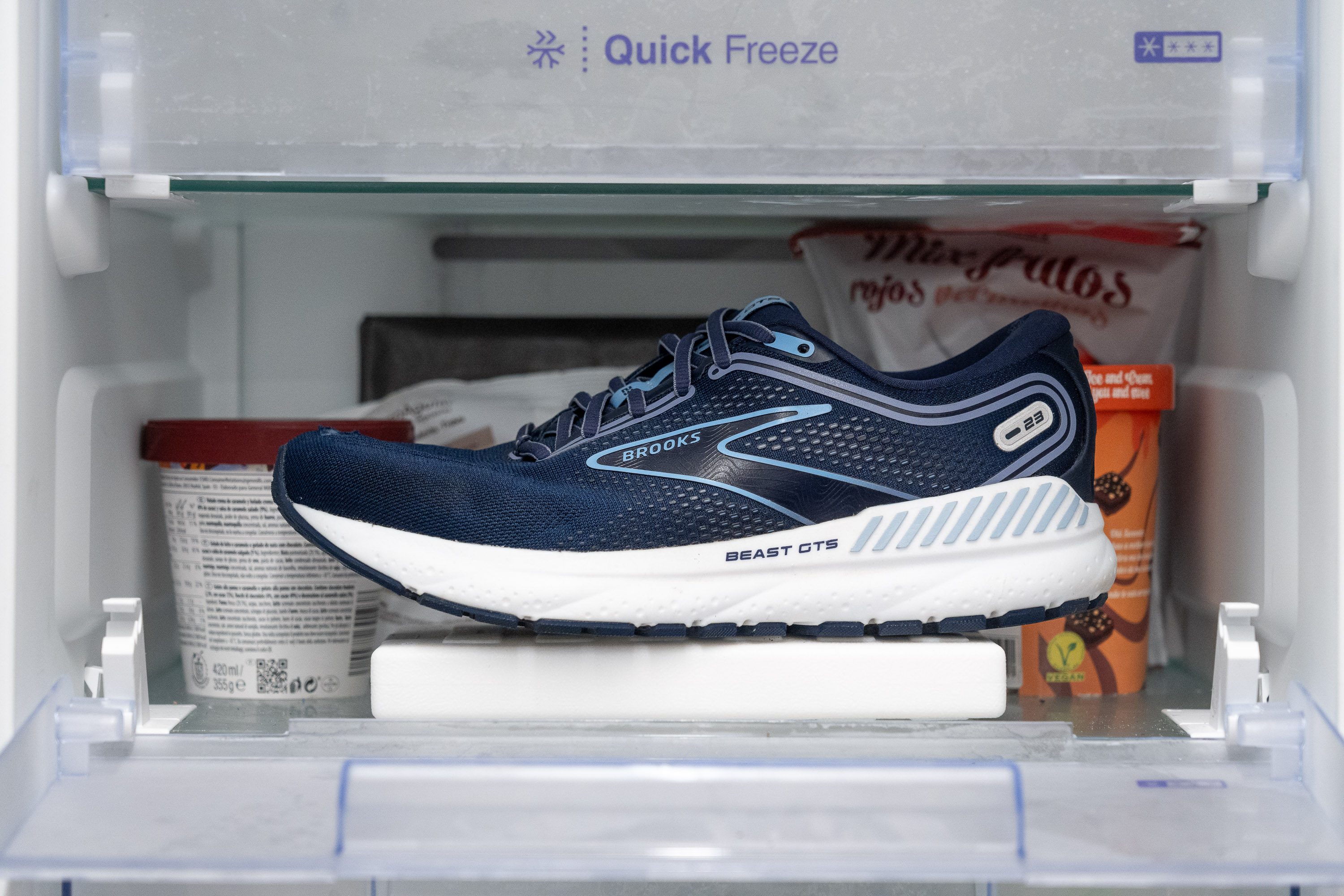
| Beast GTS 23 | 46% |
| Average | 24% |
Reflective elements
We often categorize shoes based on whether they include reflective elements. In this instance, we should note that the shoe has a "reflective element"—singular—because it only boasts one reflective piece in the heel area.
Anyway, this minor detail puts the Beast GTS 23 ahead of most competitors. However, we'd appreciate seeing more from Brooks in the future. For instance, incorporating a reflective logo could not only enhance visibility but also serve as a unique brand promotion!
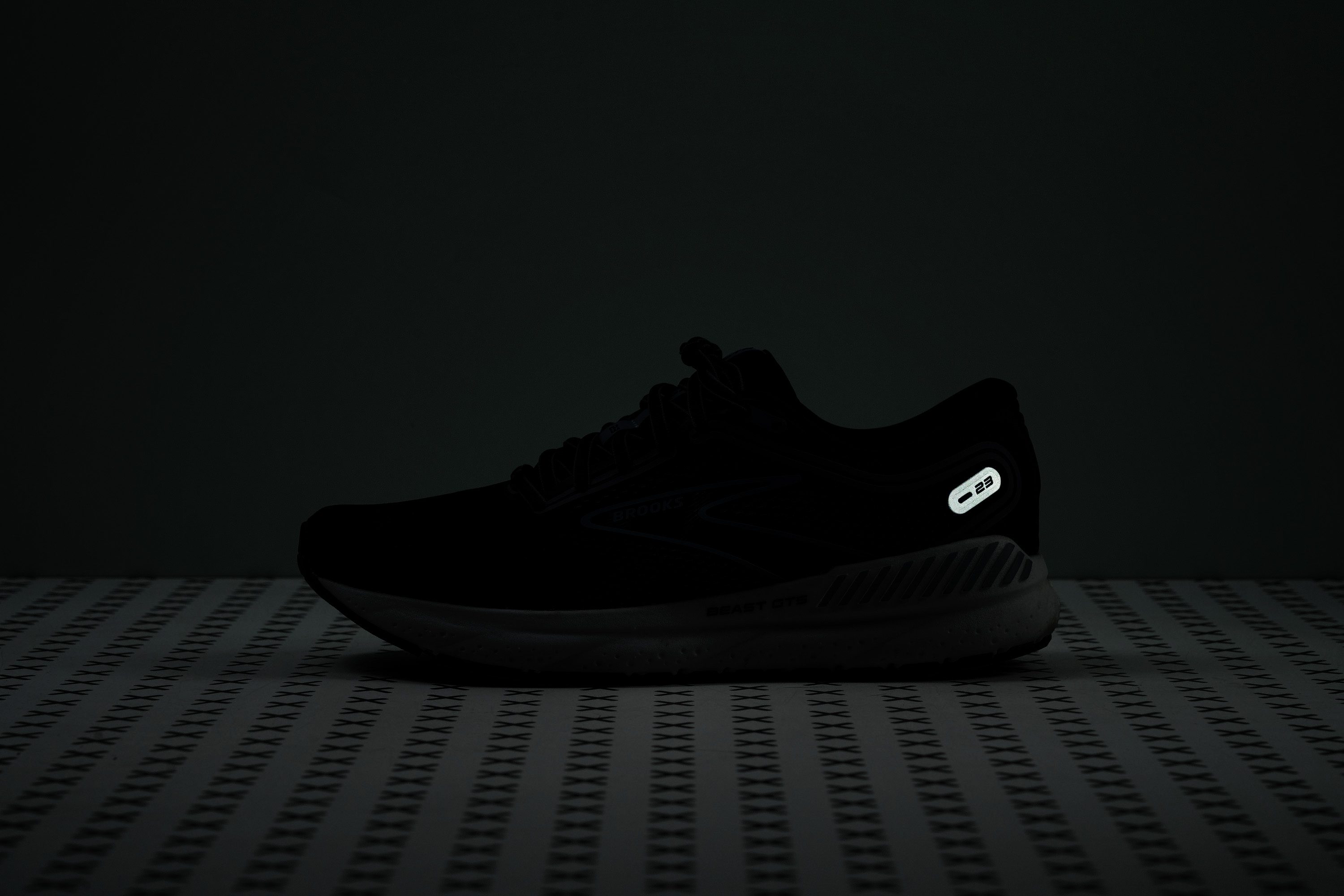
| Beast GTS 23 | Yes |
Tongue padding
Brooks went all out on the comfort game with the Beast GTS 23. I mean, an 11.3-mm thick tongue? We tied those laces super tight, and we felt there was still zero chance of feeling any discomfort in the area.
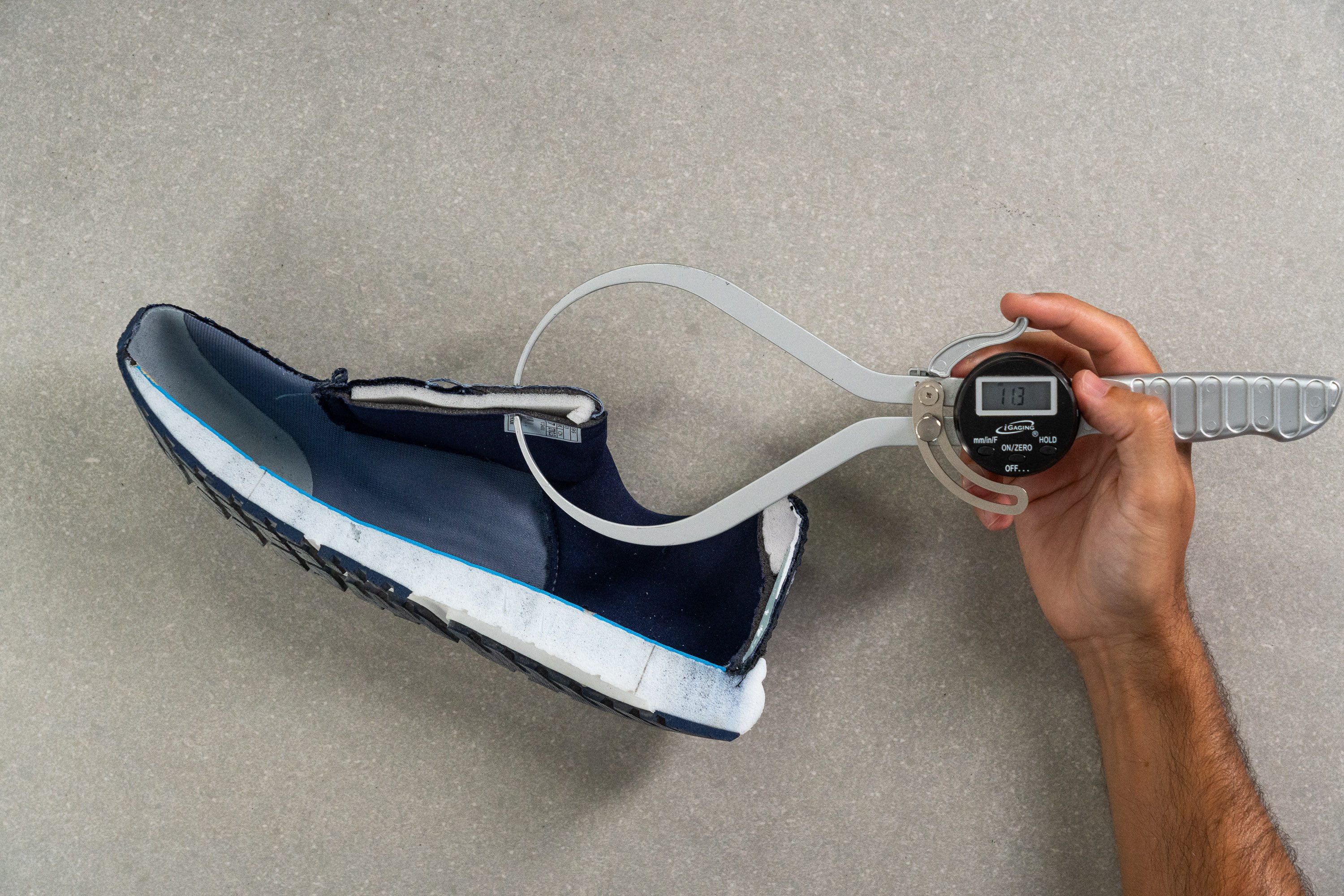
| Beast GTS 23 | 11.3 mm |
| Average | 5.7 mm |
Tongue: gusset type
The new Beast GTS features a unique one-side semi-gusseted tongue. It's a feature we don't see often in today's running shoes, but it gives a great lockdown.
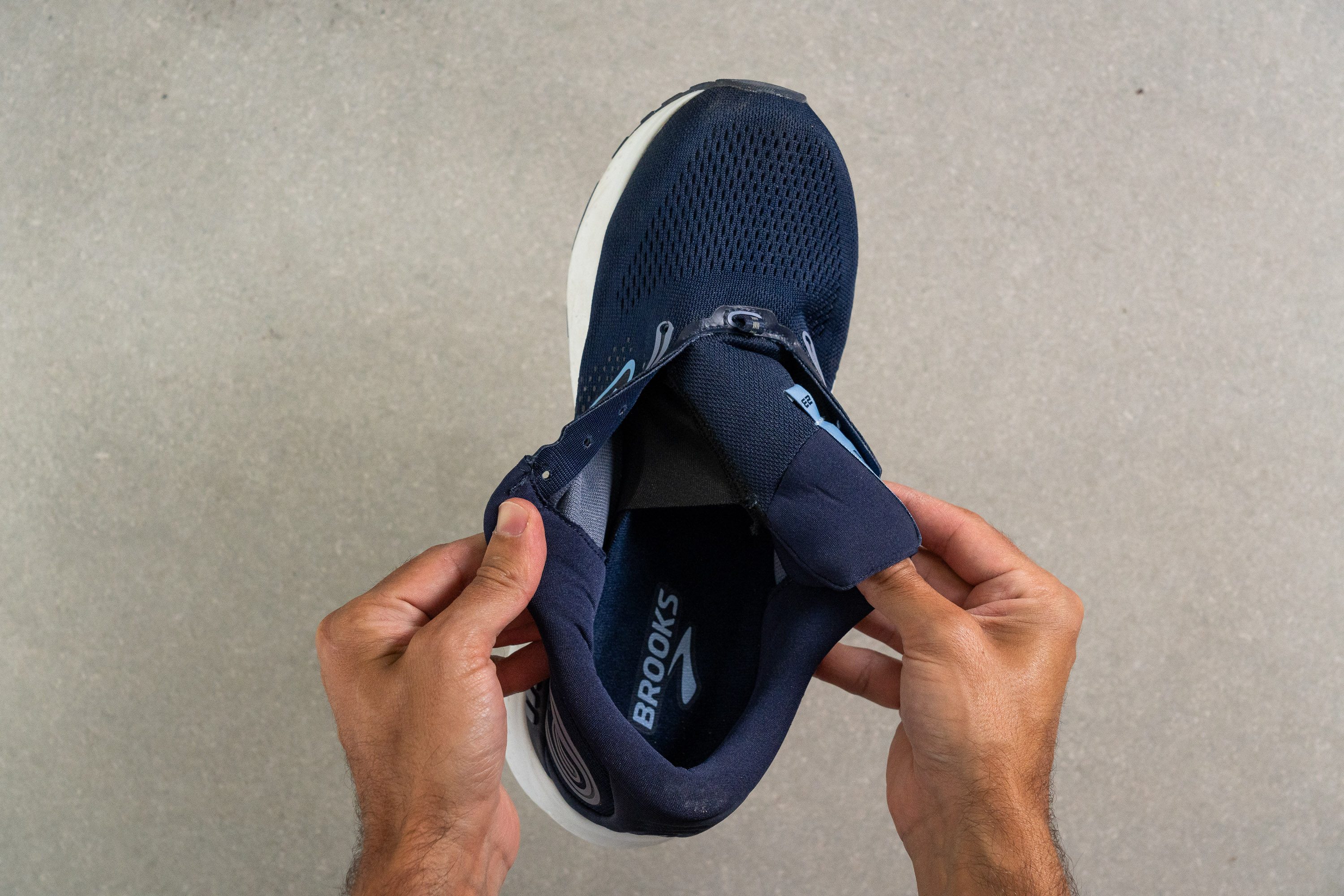
| Beast GTS 23 | One side (semi) |
Heel tab
There is no pull tab or finger loop at the back of the shoe.
| Beast GTS 23 | None |

